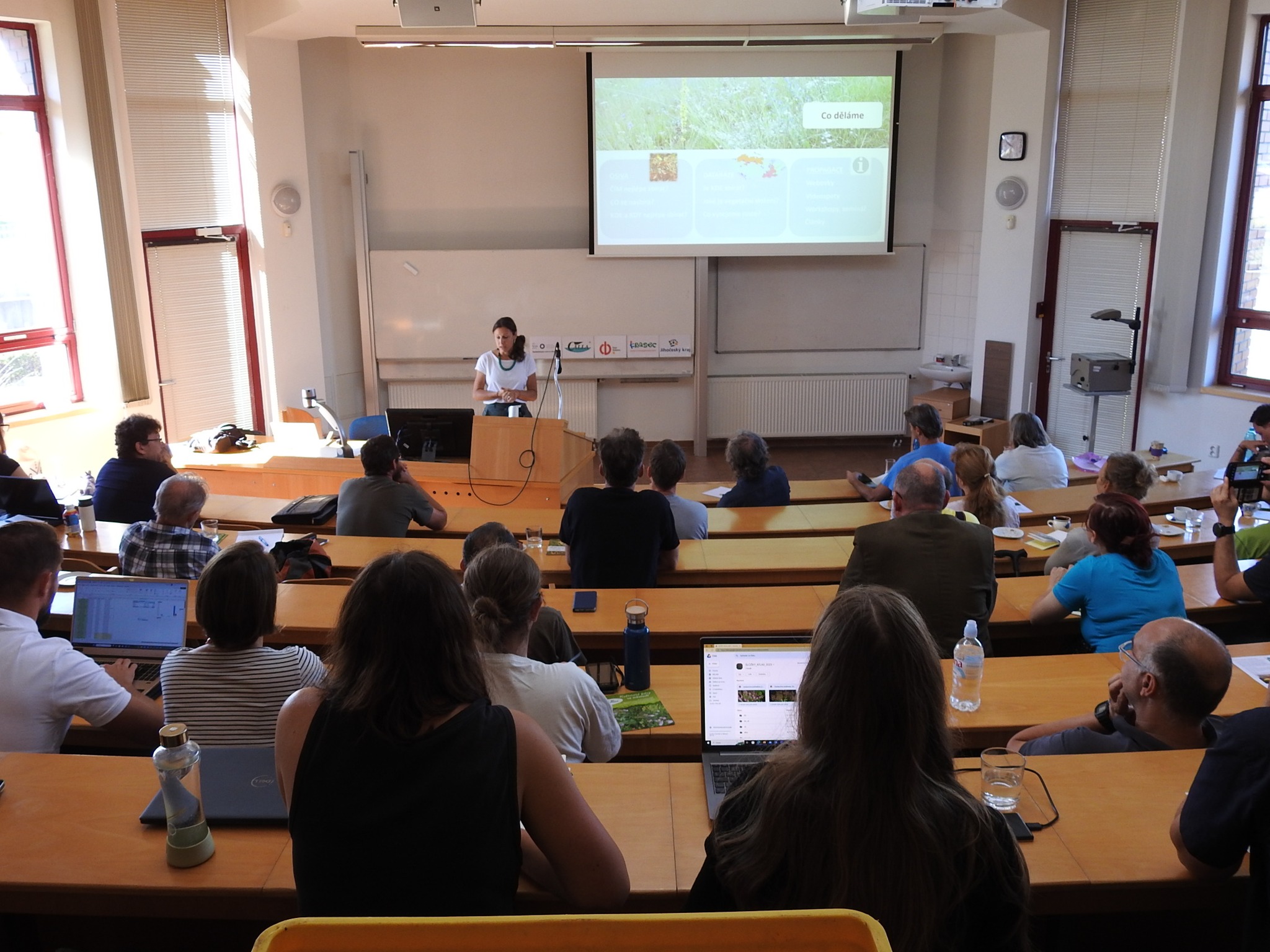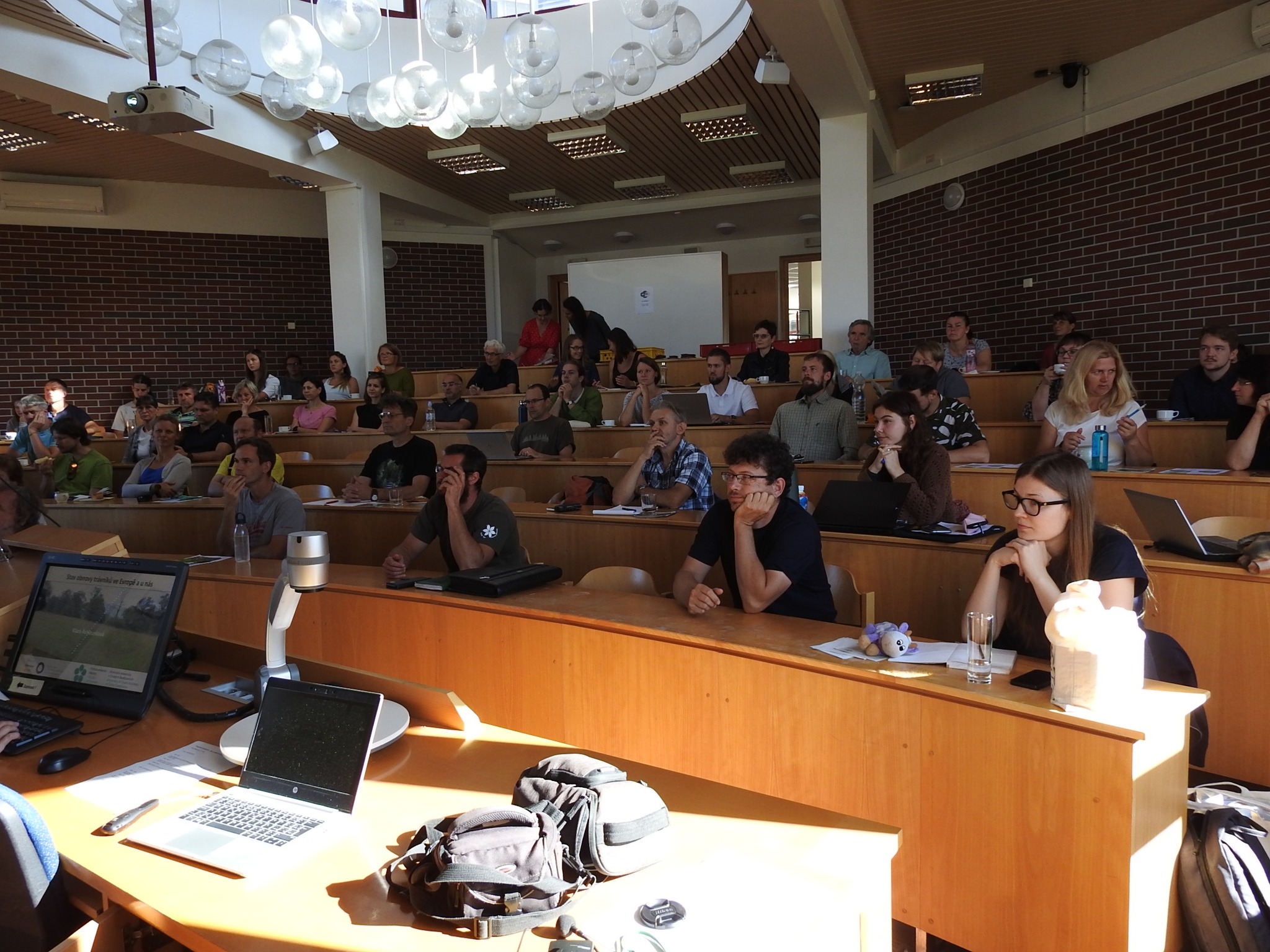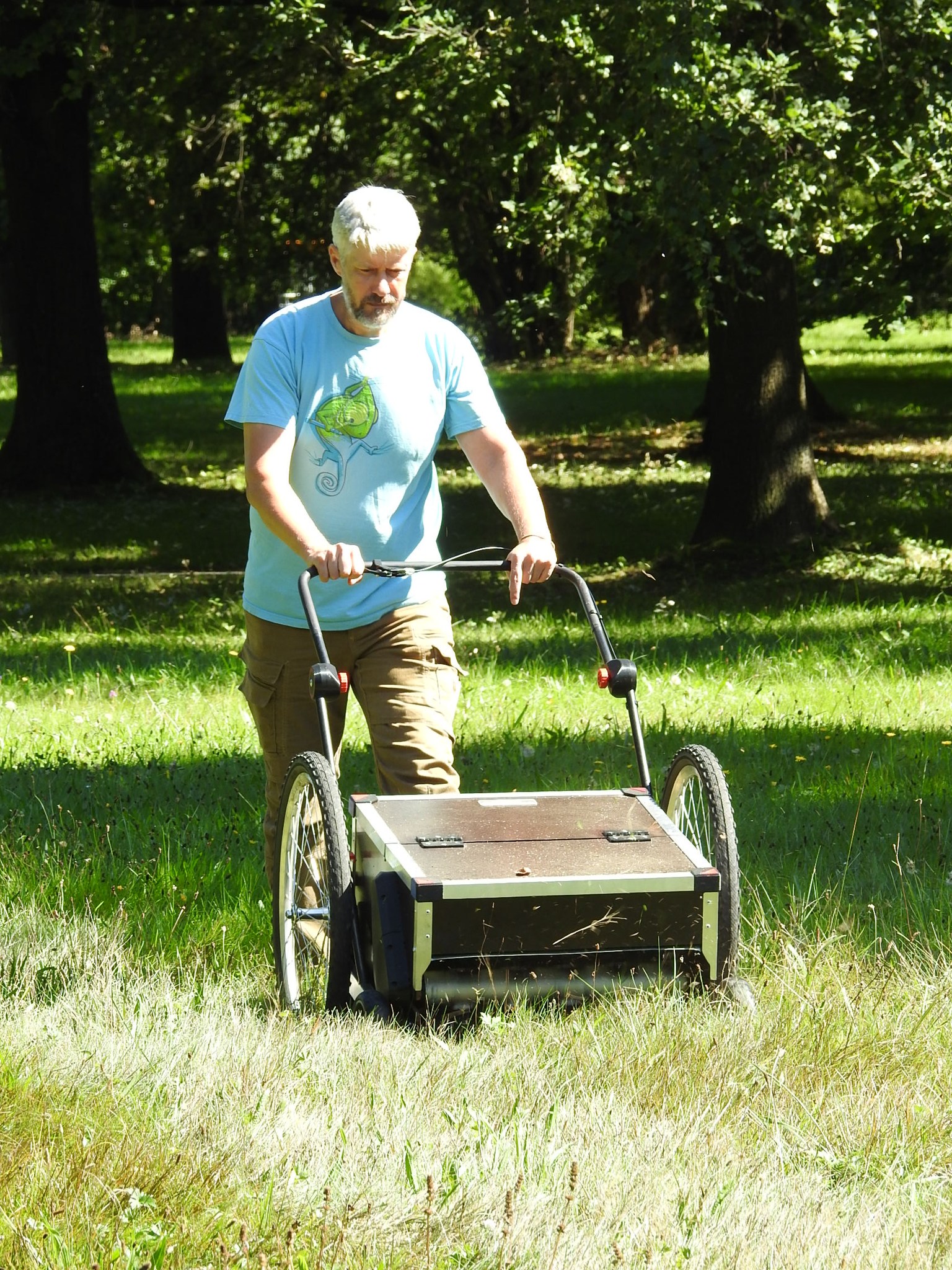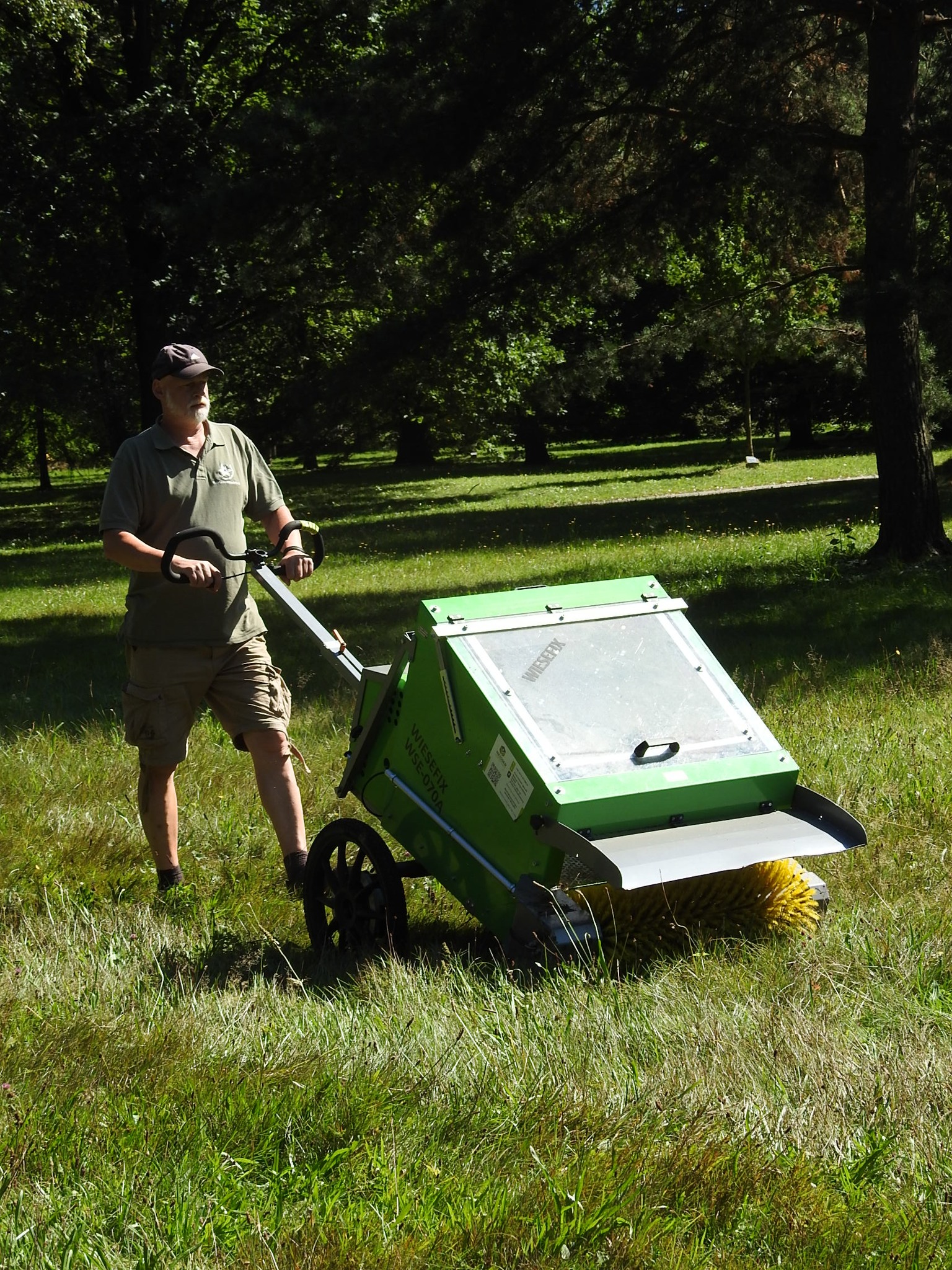|
Published on Feb 8, 2024
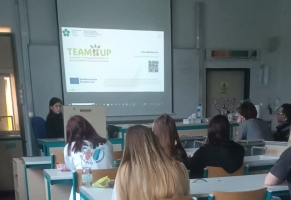 The development of the educational materials within TEAM#UP is in full swing. Our first ready-made pieces are educational videos on spontaneous succession and assisted restoration. Students of the Vodňany Grammar School bravely seized the opportunity for unofficial (and unplanned) testing of our video about spontaneous succession in practice. During the "Upside-down day", Julie Řehounková gave a lecture on ecology and then the students watched the freshly created video about spontaneous succession. We were very pleased by the feedback. The students liked the video. From the small test quiz, we learned that there is so much information in the video that it is not possible to absorb it after one view. Yet, the students did very well in the quiz. The development of the educational materials within TEAM#UP is in full swing. Our first ready-made pieces are educational videos on spontaneous succession and assisted restoration. Students of the Vodňany Grammar School bravely seized the opportunity for unofficial (and unplanned) testing of our video about spontaneous succession in practice. During the "Upside-down day", Julie Řehounková gave a lecture on ecology and then the students watched the freshly created video about spontaneous succession. We were very pleased by the feedback. The students liked the video. From the small test quiz, we learned that there is so much information in the video that it is not possible to absorb it after one view. Yet, the students did very well in the quiz.
We firmly believe that other parts of our educational materials will celebrate the same success.
Photo: Jiřka Šandová
 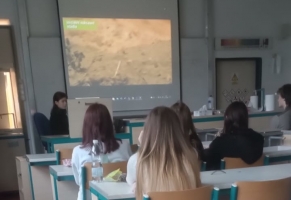
Published on Dec 19, 2023
 Our project has lived through the first six months of its life. We decided to celebrate this anniversary by publishing our first newsletter where you can read about our progress, and, if you are interested, register for the newsletter. This is just the beginning! Our project has lived through the first six months of its life. We decided to celebrate this anniversary by publishing our first newsletter where you can read about our progress, and, if you are interested, register for the newsletter. This is just the beginning!
#Teamup2Restore
Published on Nov 27, 2023
Published on Nov 11, 2023
Published on Oct 15, 2023
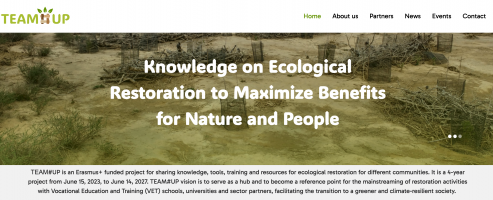 We are happy to announce that the website of the TEAM#UP project has been launched. At www.teamup2restore.eu you will find project updates, a knowledge platform with teaching materials in the national languages as well as in English, events and workshops and much more. We are happy to announce that the website of the TEAM#UP project has been launched. At www.teamup2restore.eu you will find project updates, a knowledge platform with teaching materials in the national languages as well as in English, events and workshops and much more.
The TEAM#UP project aims to expand the existing knowledge in the field of ecological restoration to vocational education and training. Through the cooperation between vocational schools, university and research institutions, and sectoral partners, open educational materials on ecological restoration will be developed.
#TeamUp2Restore

Published on Oct 12, 2023
Published on Sep 28, 2023
|
|
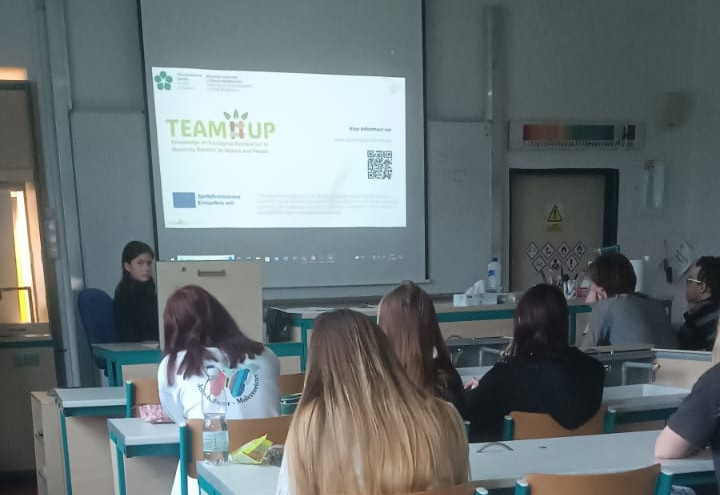 The development of the educational materials within TEAM#UP is in full swing. Our first ready-made pieces are educational videos on spontaneous succession and assisted restoration. Students of the Vodňany Grammar School bravely seized the opportunity for unofficial (and unplanned) testing of our video about spontaneous succession in practice. During the "Upside-down day", Julie Řehounková gave a lecture on ecology and then the students watched the freshly created video about spontaneous succession. We were very pleased by the feedback. The students liked the video. From the small test quiz, we learned that there is so much information in the video that it is not possible to absorb it after one view. Yet, the students did very well in the quiz.
The development of the educational materials within TEAM#UP is in full swing. Our first ready-made pieces are educational videos on spontaneous succession and assisted restoration. Students of the Vodňany Grammar School bravely seized the opportunity for unofficial (and unplanned) testing of our video about spontaneous succession in practice. During the "Upside-down day", Julie Řehounková gave a lecture on ecology and then the students watched the freshly created video about spontaneous succession. We were very pleased by the feedback. The students liked the video. From the small test quiz, we learned that there is so much information in the video that it is not possible to absorb it after one view. Yet, the students did very well in the quiz.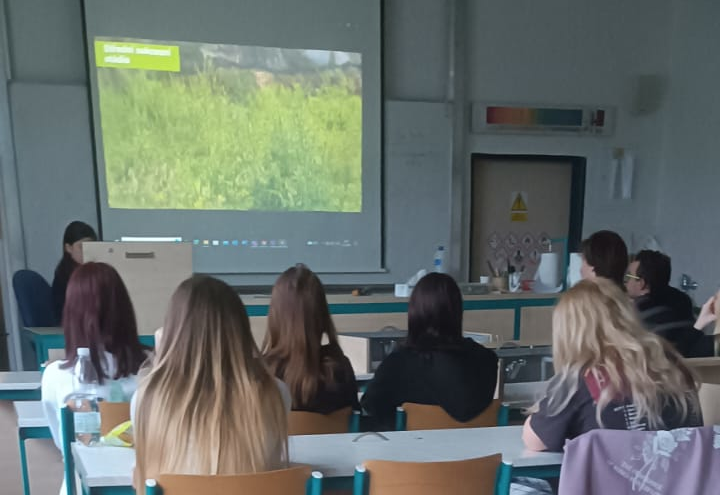
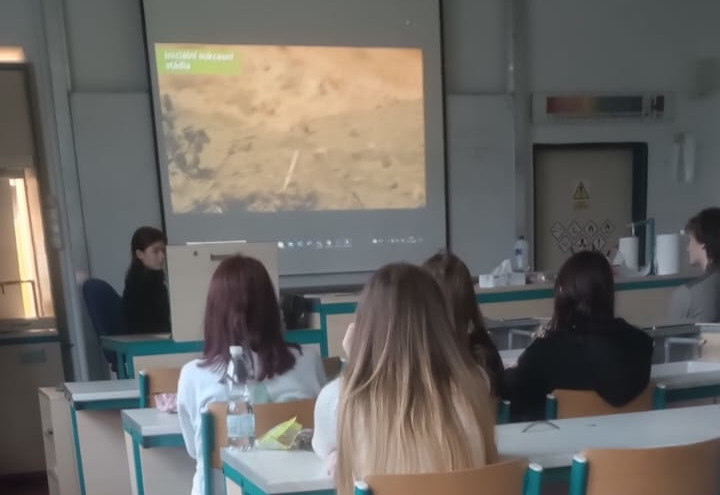
 Our project has lived through the first six months of its life. We decided to celebrate this anniversary by
Our project has lived through the first six months of its life. We decided to celebrate this anniversary by 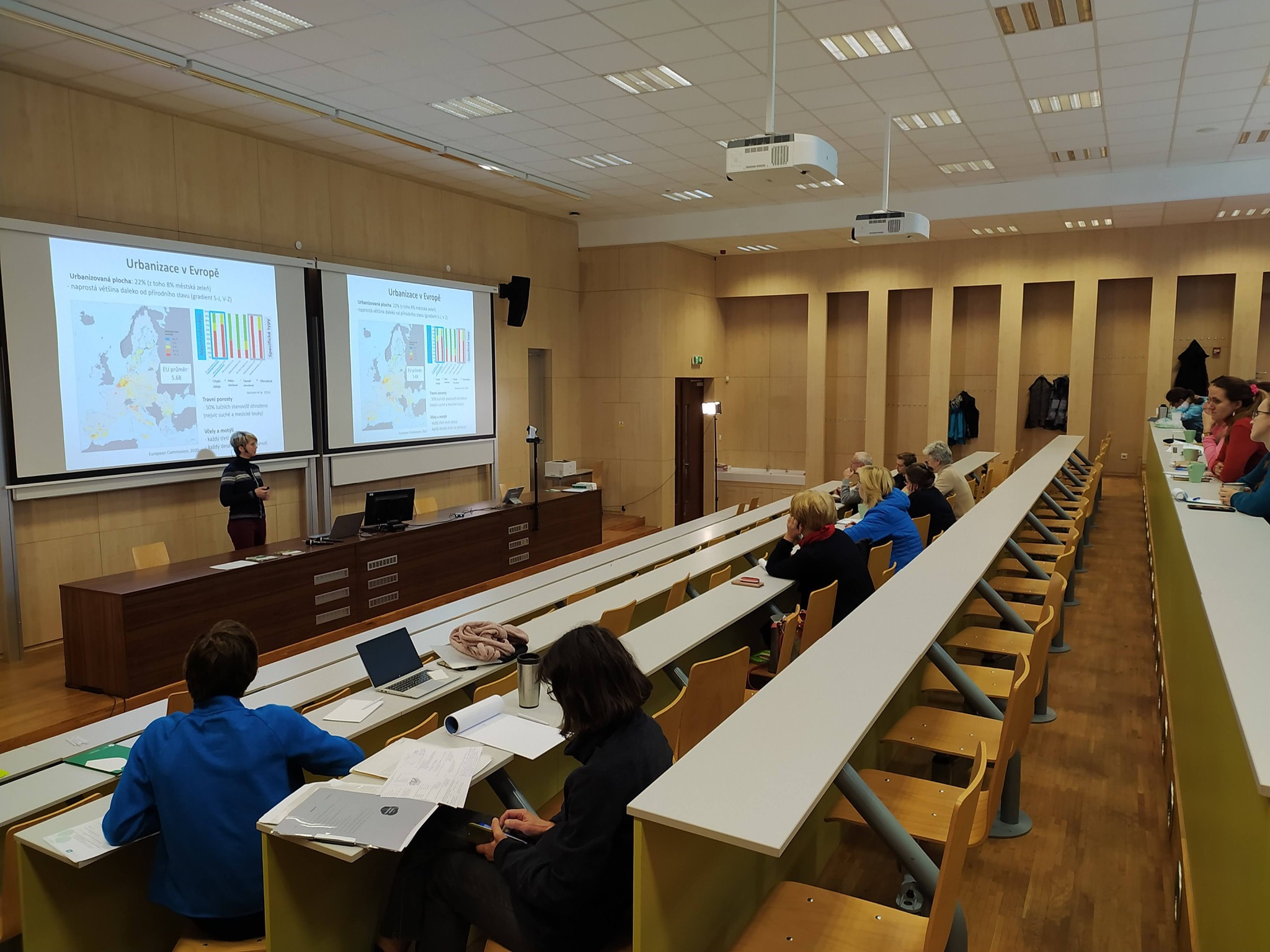 Back to school is the name of the weekend for secondary school teachers, which is regularly organized by the Faculty of Science USB. Our working group also participated in the program this year. At first, Klára presented an urban ecology topic and showed that even a minor change in greenery maintenance could cause a big difference in biodiversity. Her presentation was followed by Lenka advertising the
Back to school is the name of the weekend for secondary school teachers, which is regularly organized by the Faculty of Science USB. Our working group also participated in the program this year. At first, Klára presented an urban ecology topic and showed that even a minor change in greenery maintenance could cause a big difference in biodiversity. Her presentation was followed by Lenka advertising the 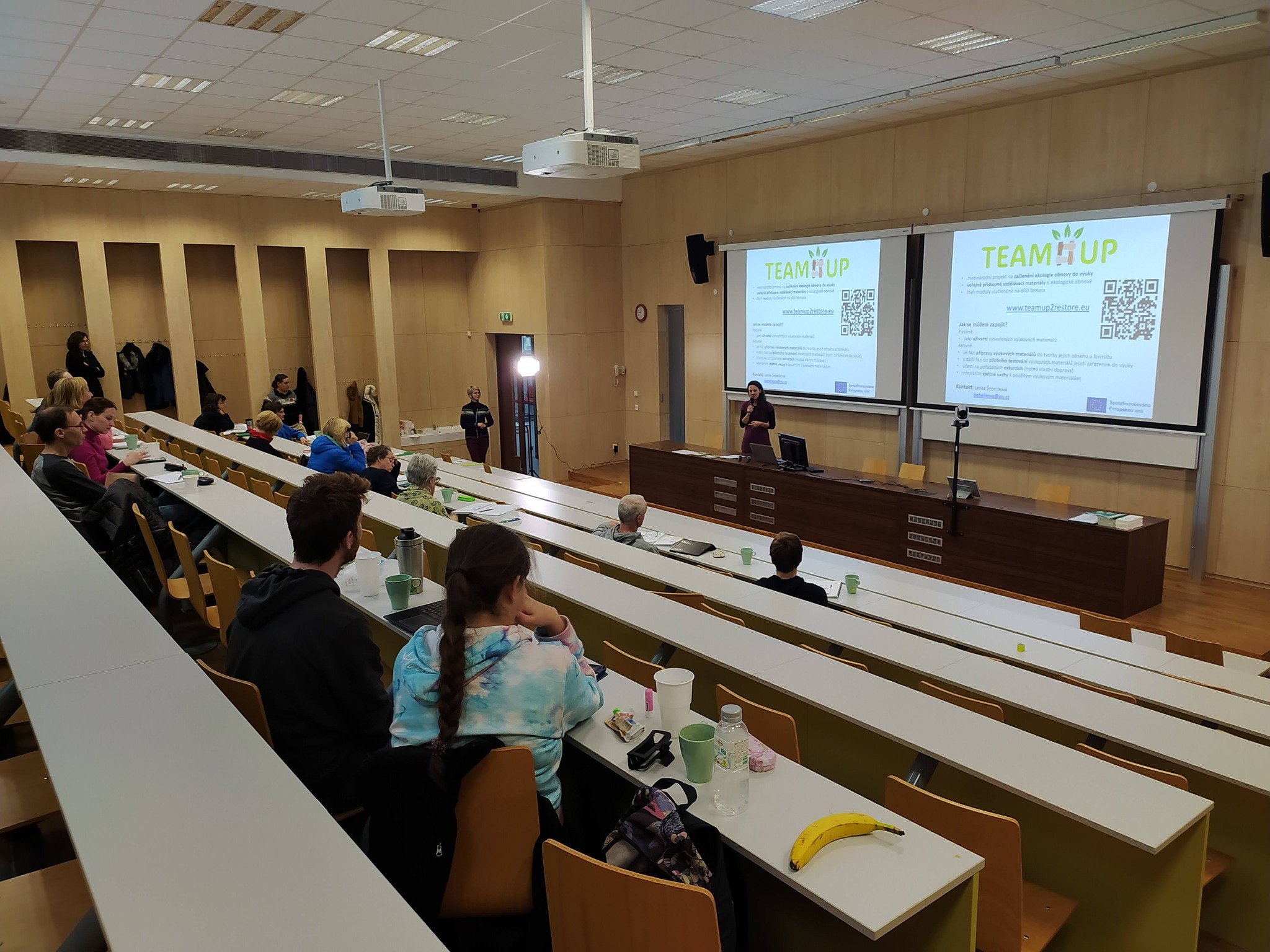
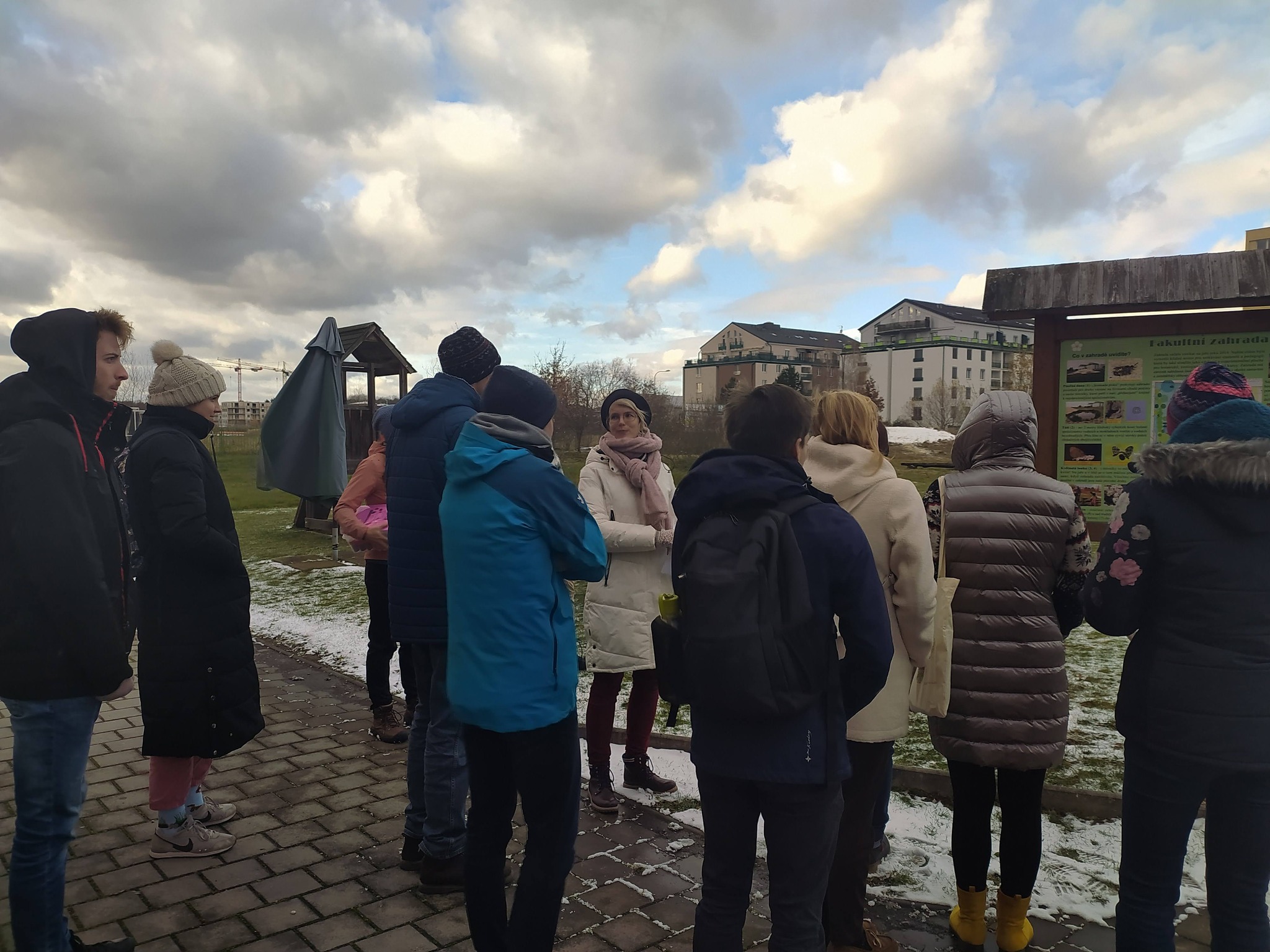
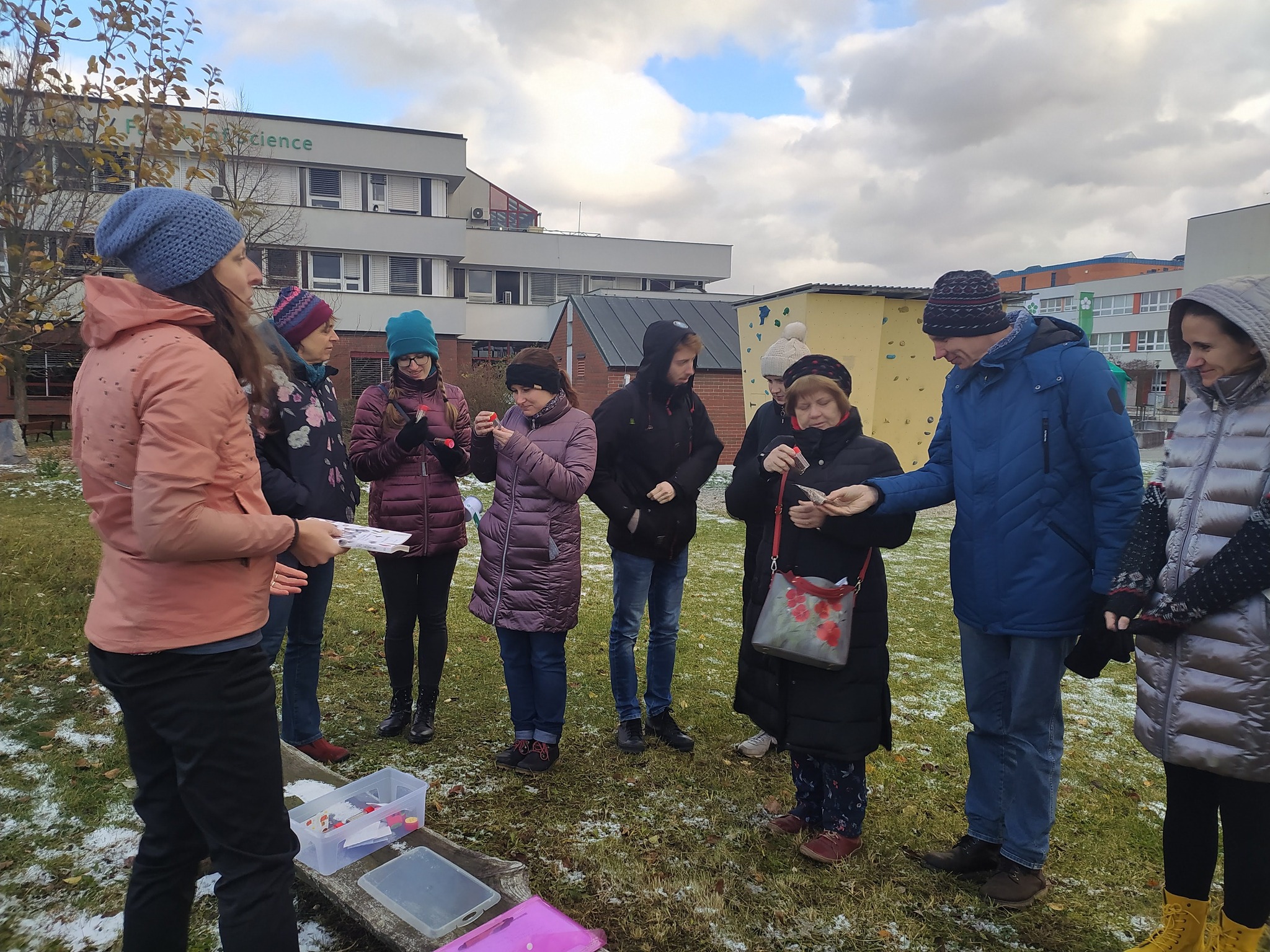
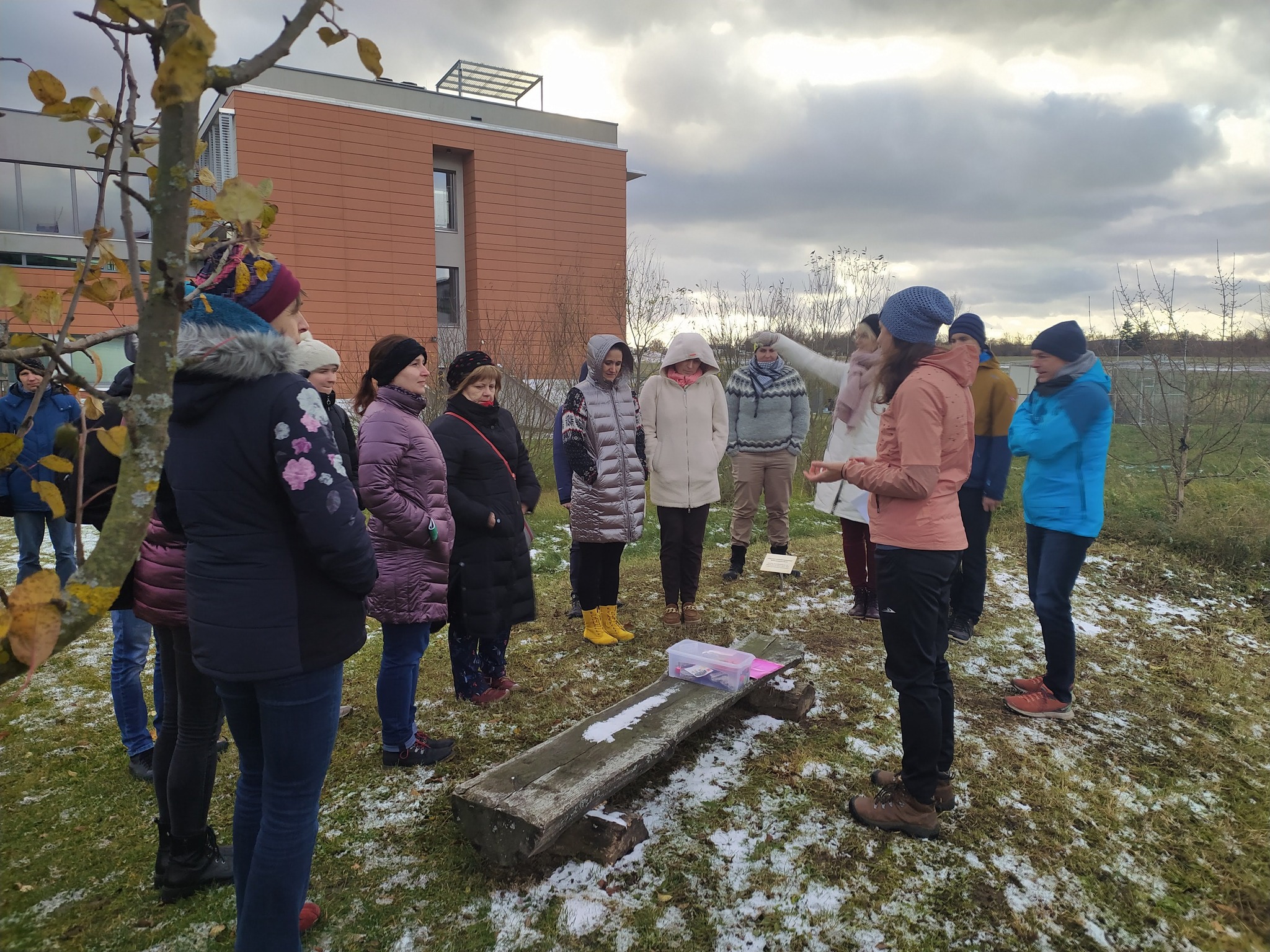
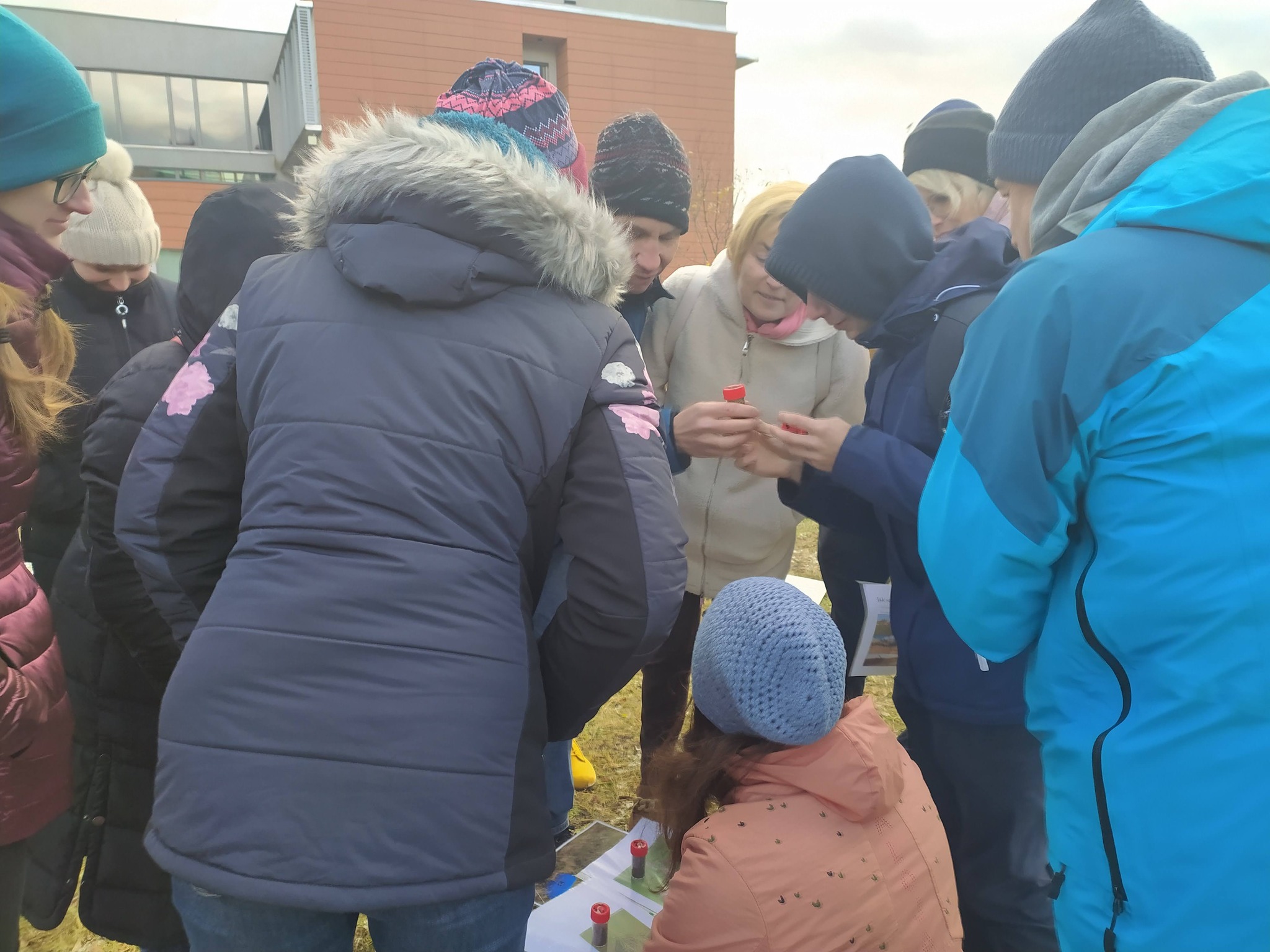
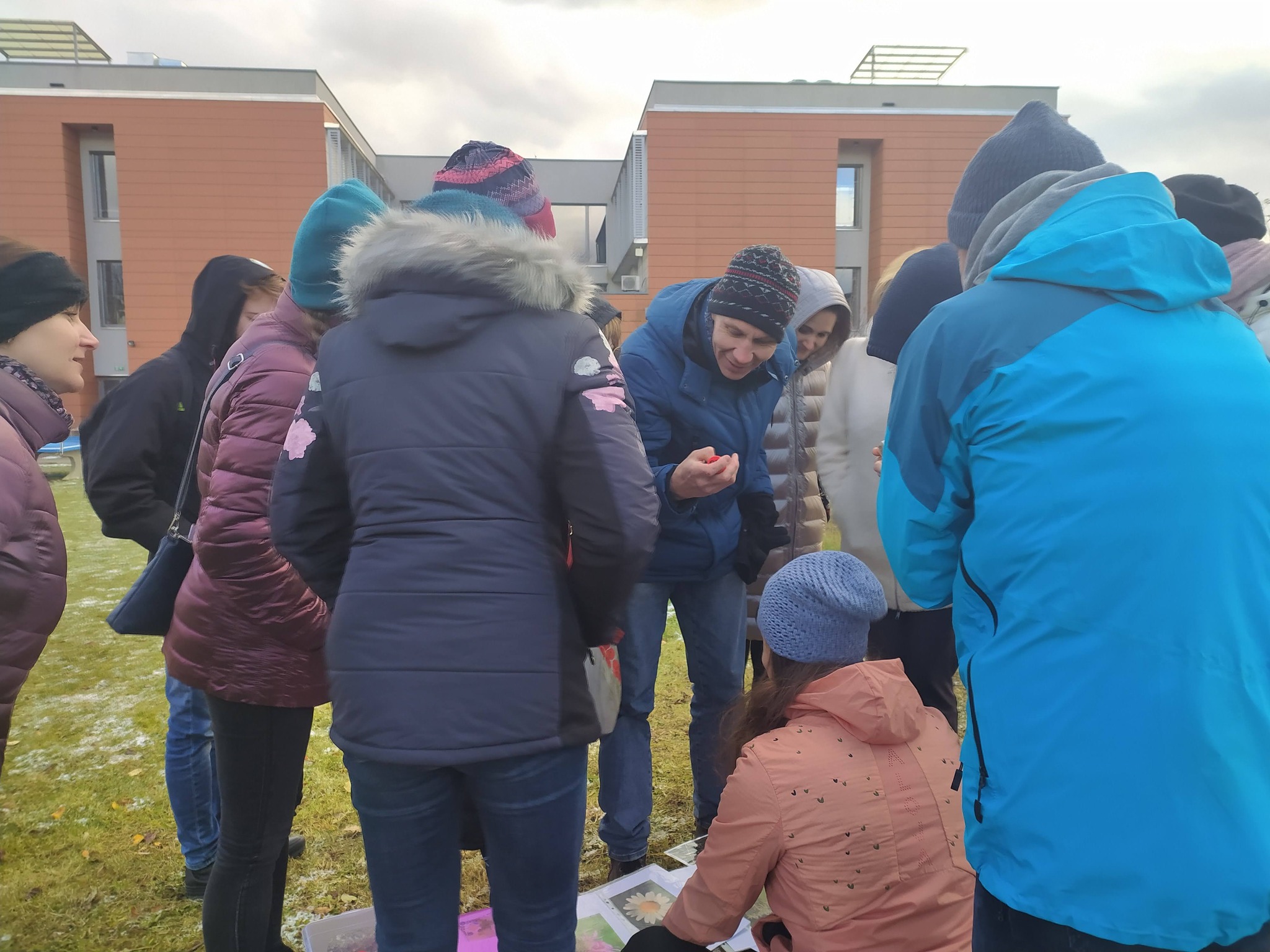
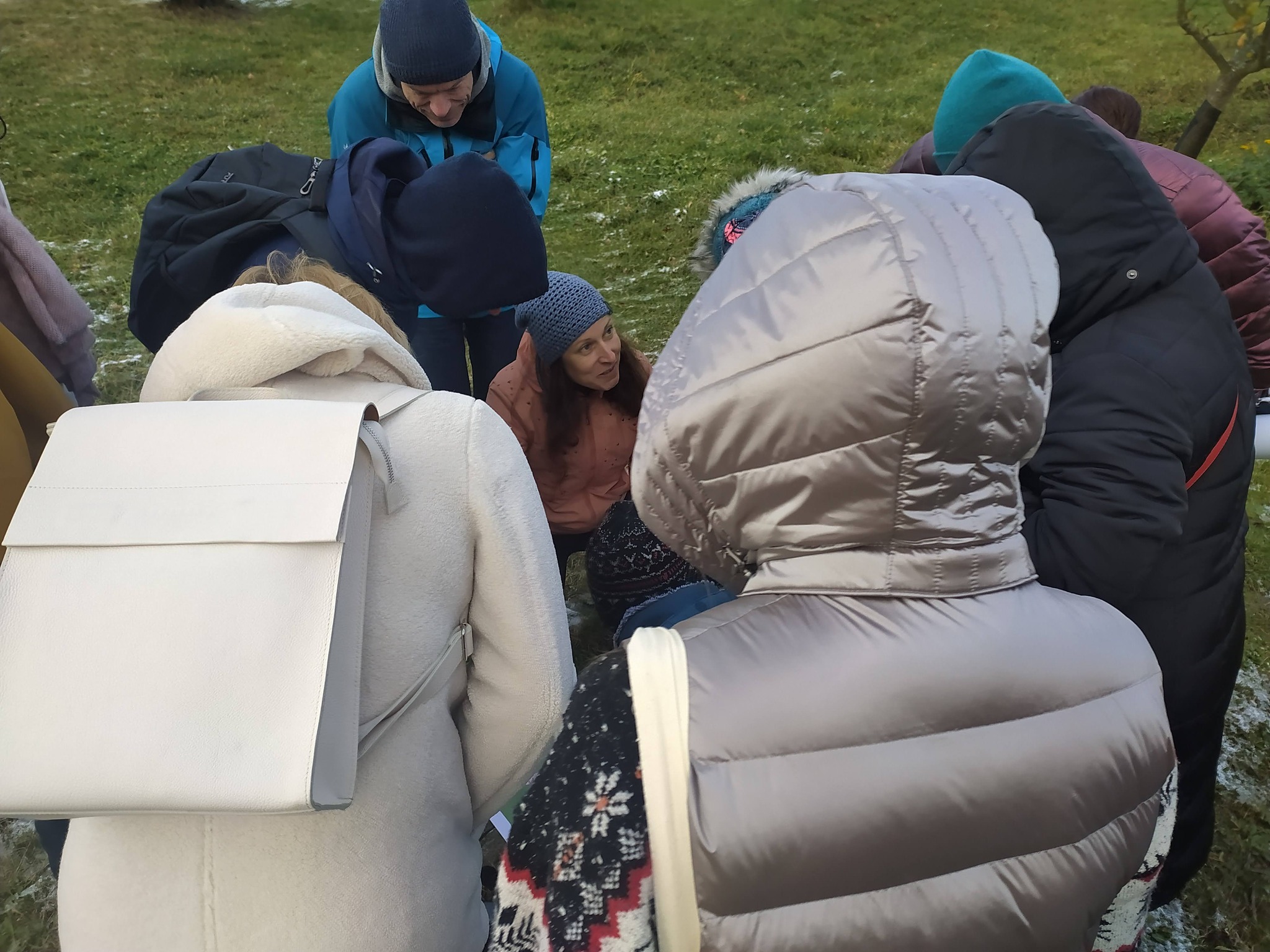
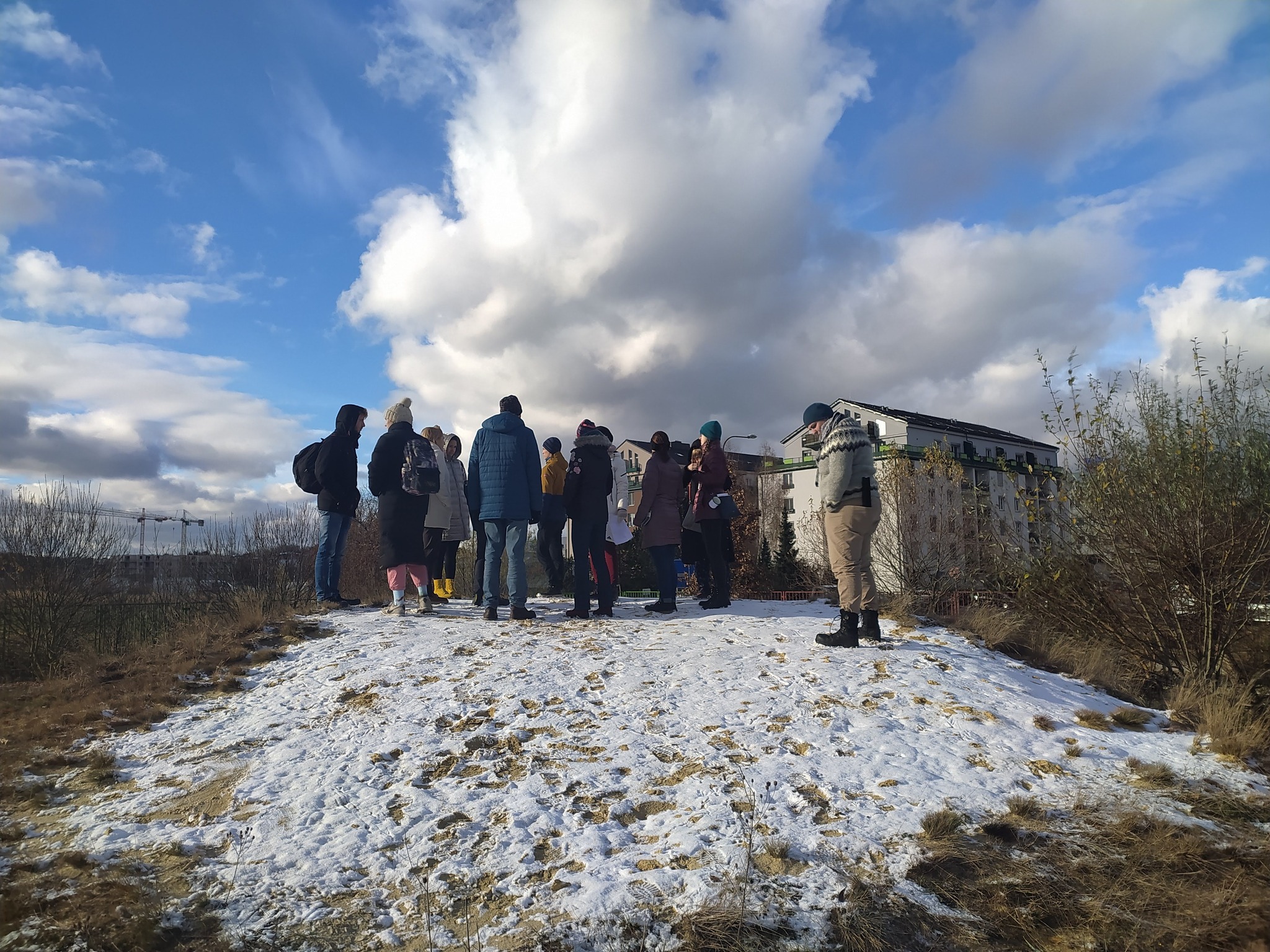
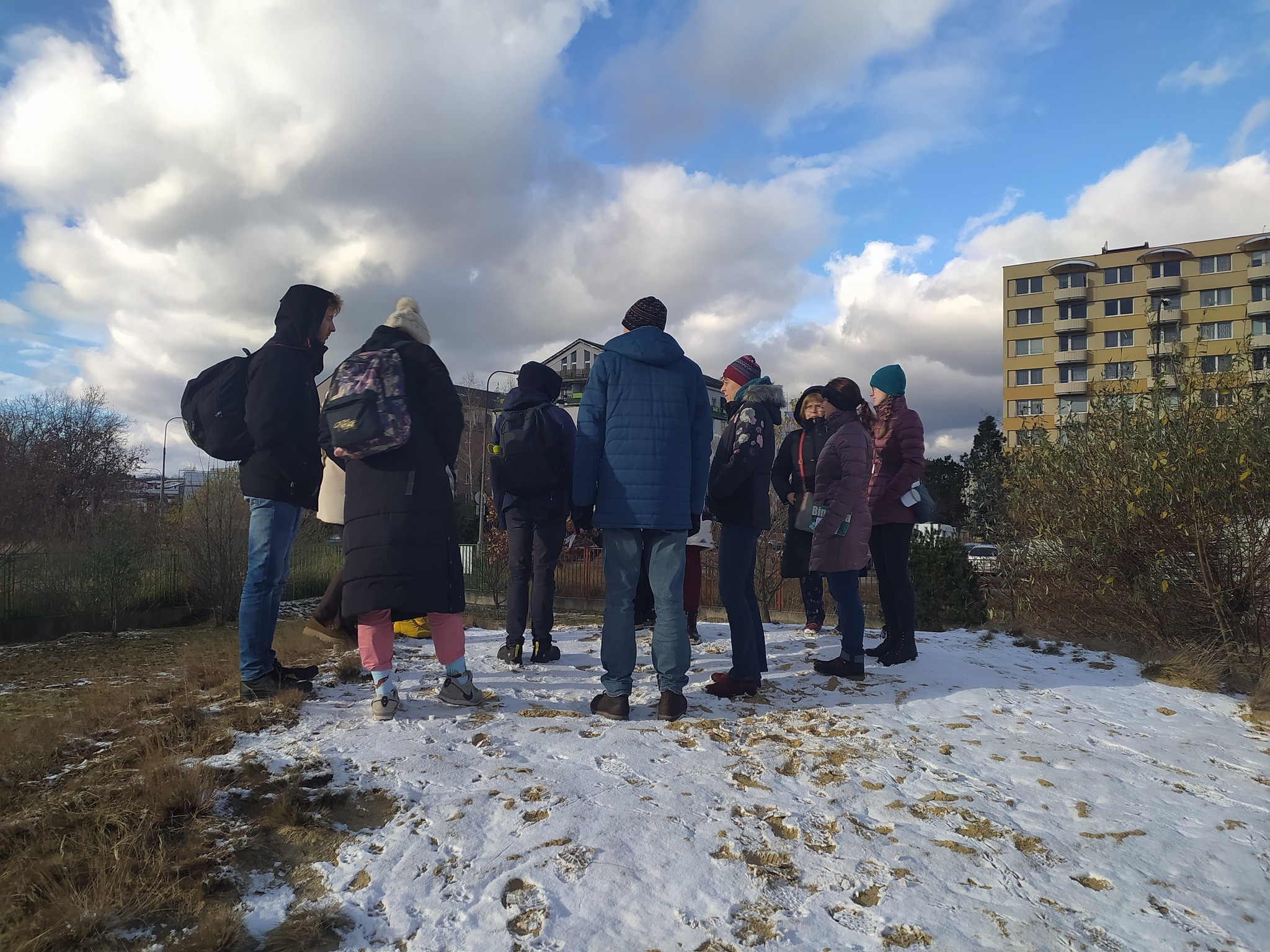
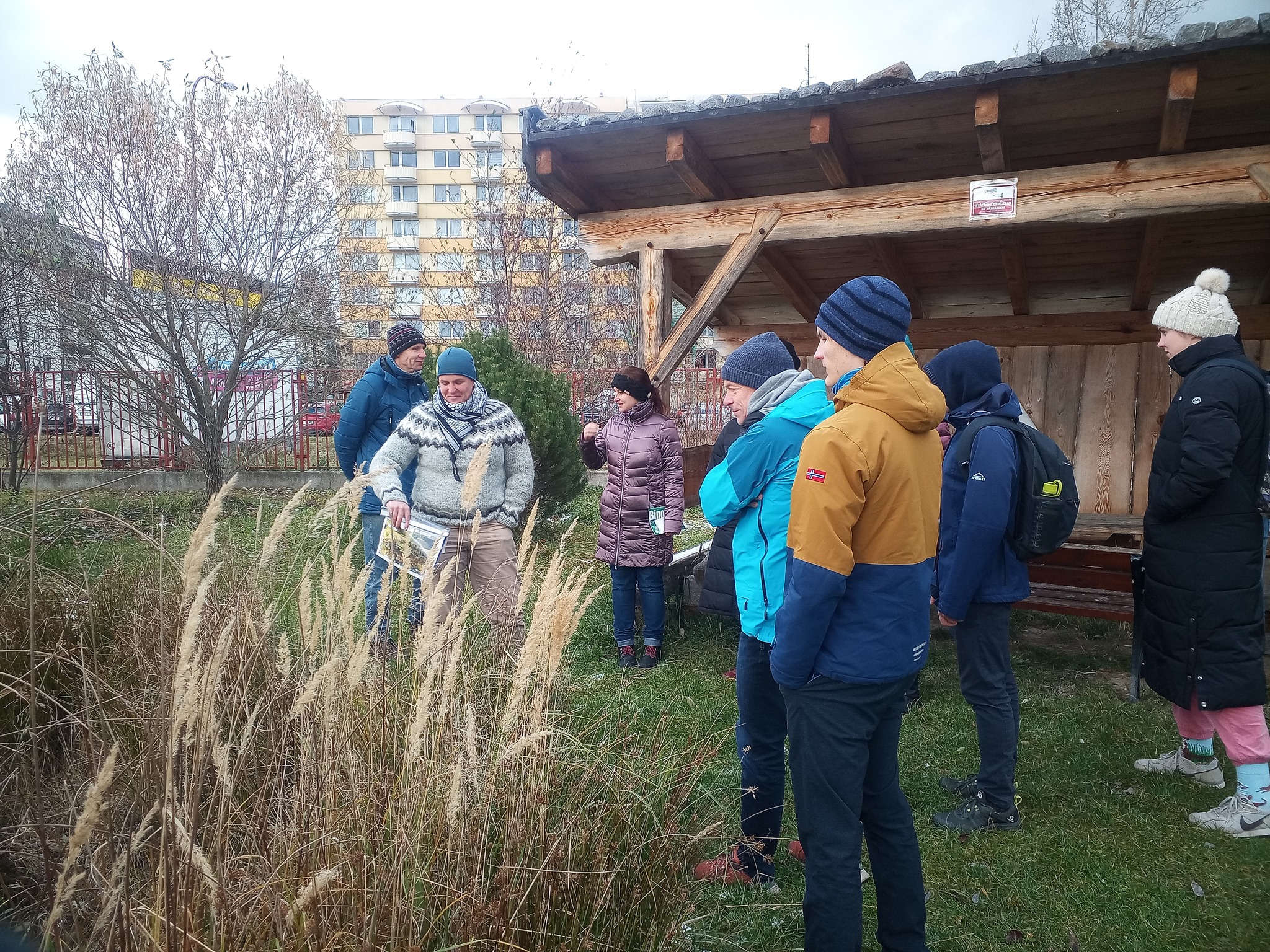
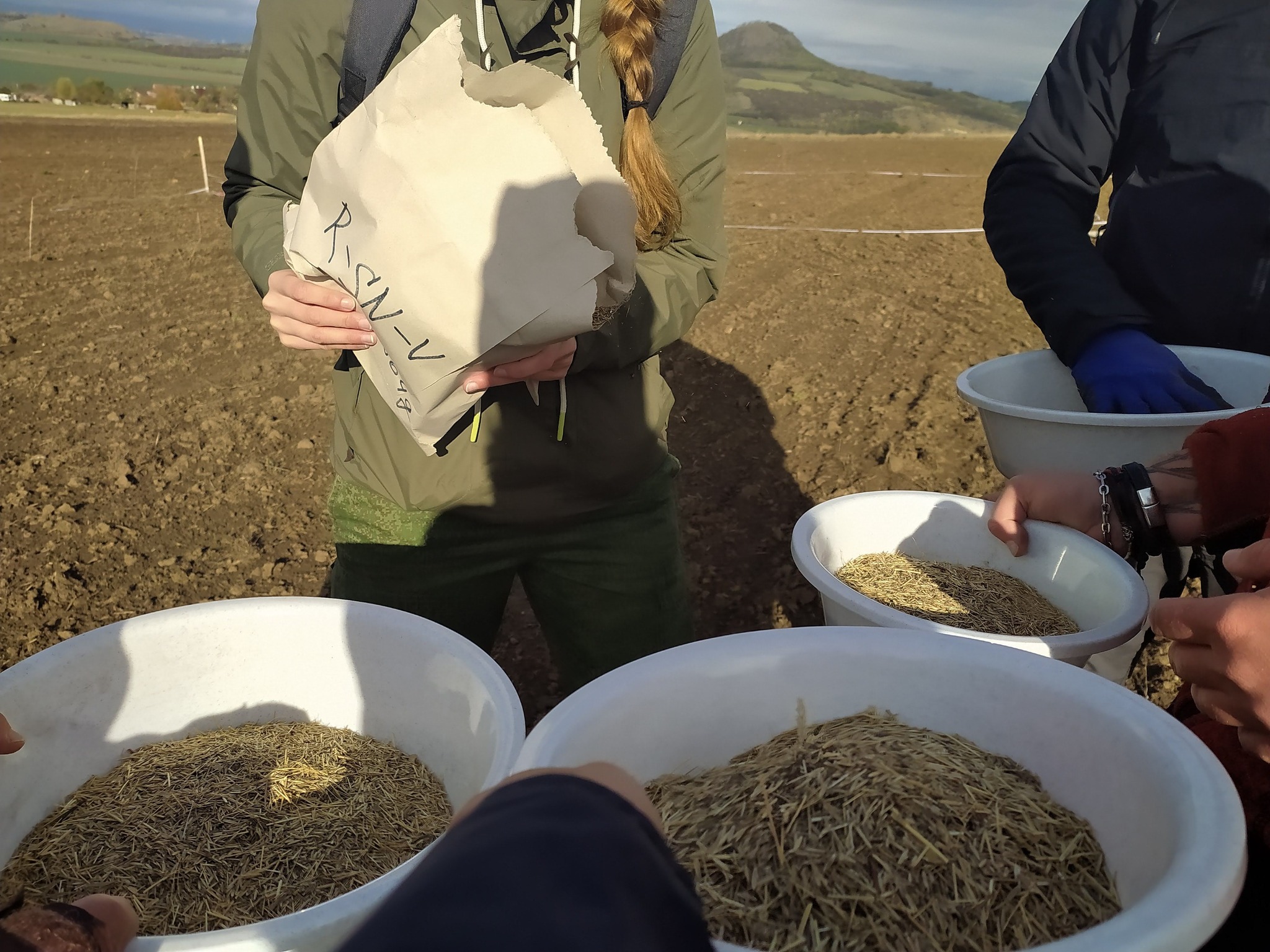 Together with our partners, Agrostis Trávníky and the Czech Union for Nature Conservation, we sowed another experimental field with a regional seed mixture. The new experimental plot is at Raná and the seed mixture was brush-harvested either directly on the Raná hill, or on a nearby meadow on Milá hill. If everything goes well, Stipa steppe might enlarge by half a hectare within a few years.
Together with our partners, Agrostis Trávníky and the Czech Union for Nature Conservation, we sowed another experimental field with a regional seed mixture. The new experimental plot is at Raná and the seed mixture was brush-harvested either directly on the Raná hill, or on a nearby meadow on Milá hill. If everything goes well, Stipa steppe might enlarge by half a hectare within a few years.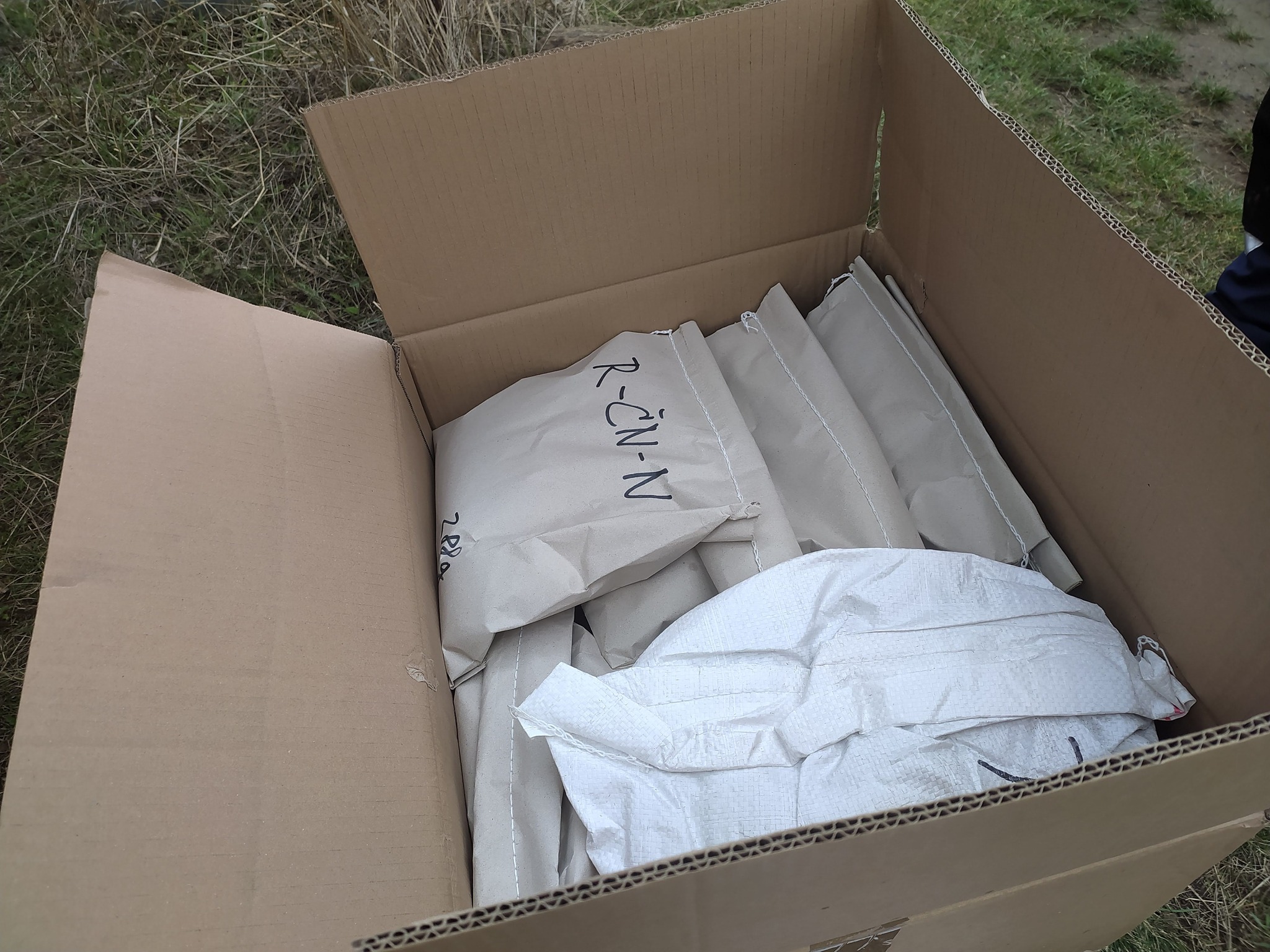
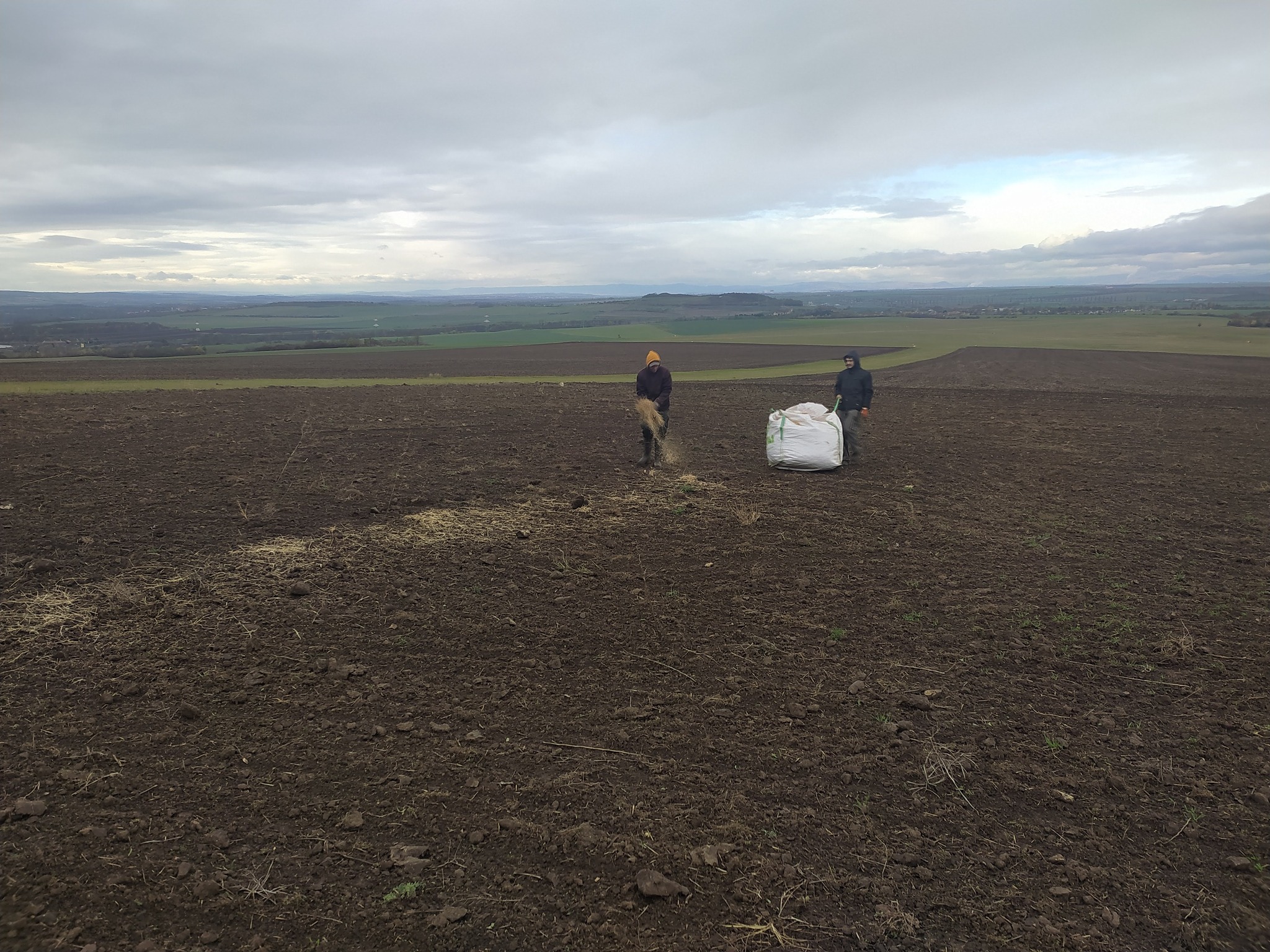
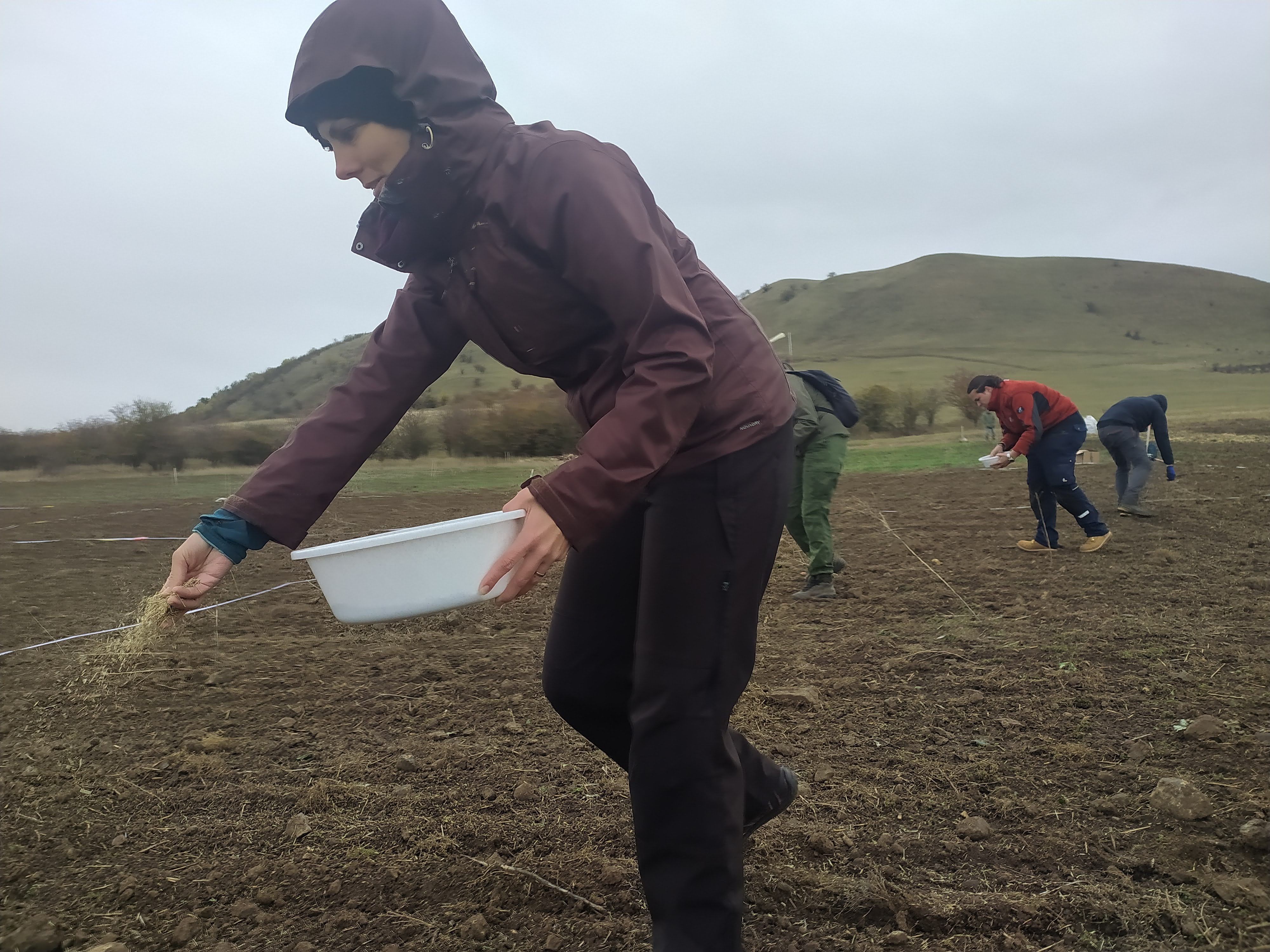
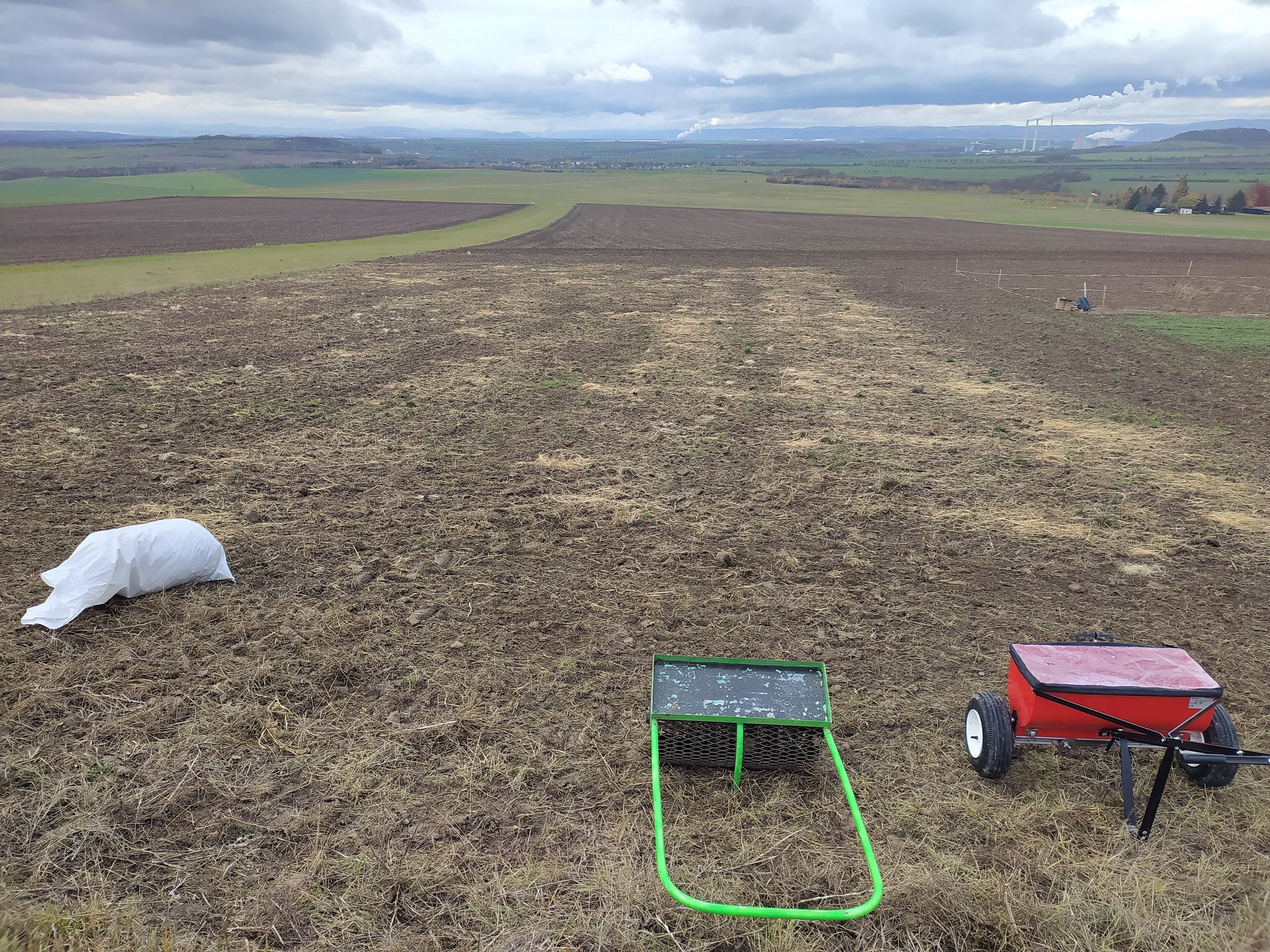
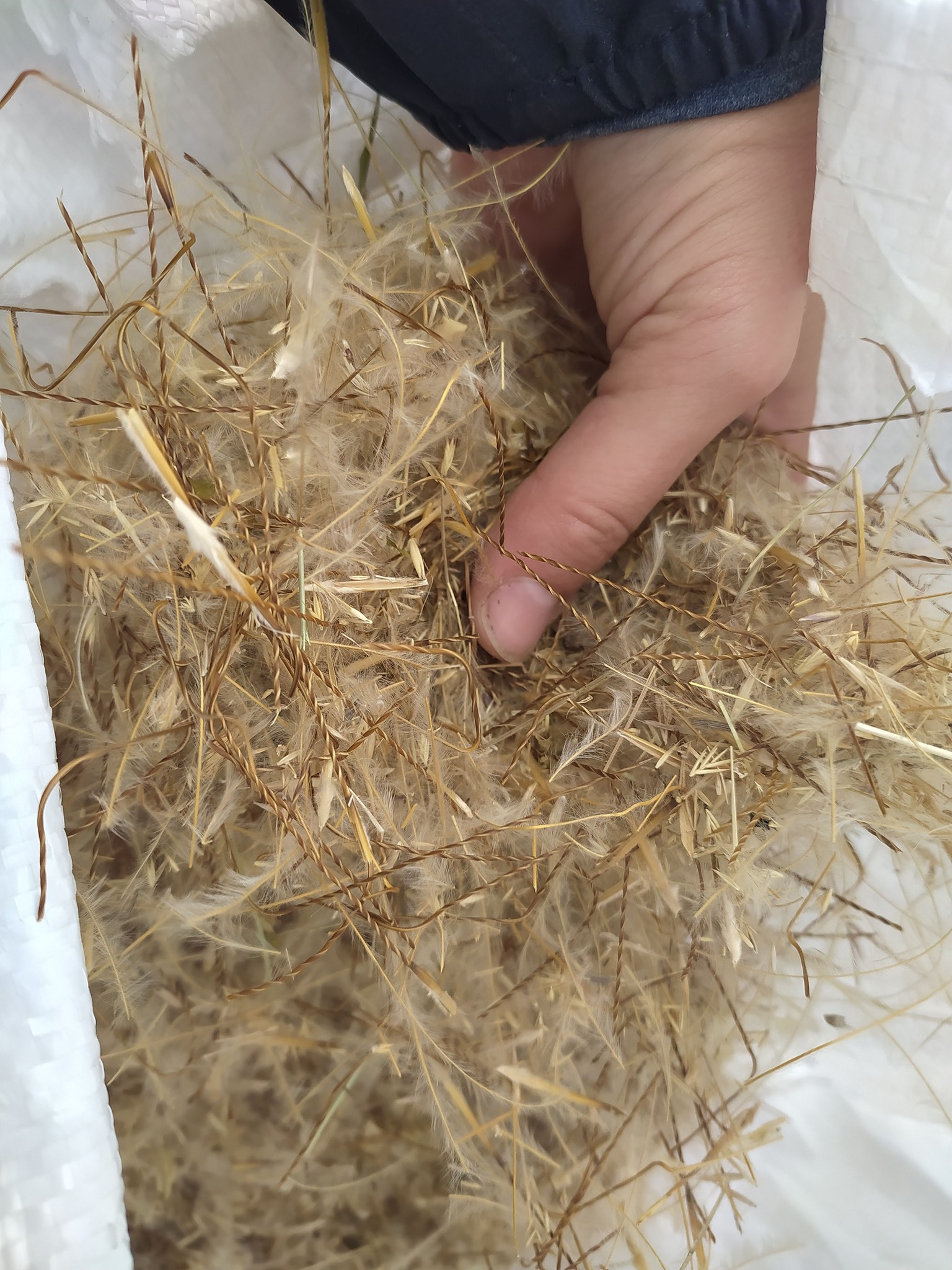
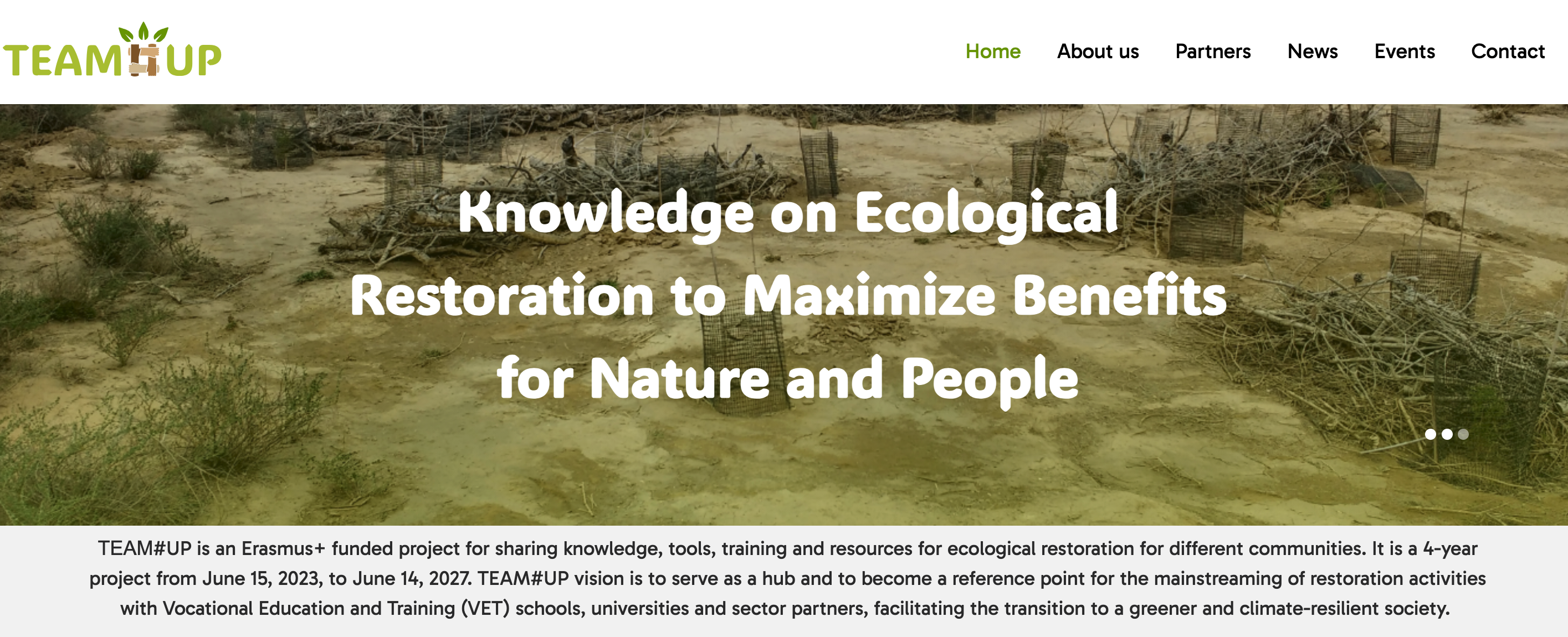 We are happy to announce that the website of the TEAM#UP project has been launched. At
We are happy to announce that the website of the TEAM#UP project has been launched. At 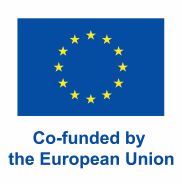
 We hosted a meeting of Czech TEAM#UP partners on Wednesday, 11th October in České Budějovice. Thanks to the great participation of representatives of the Agricultural College and Agricultural Secondary School Benešov and on-line participation of Kateřina Urbánková, representative of the Pro-Bio Association of Organic Farmers, we could discuss in detail the progress of the work and the content of the teaching materials that will be created within the project. Participants also had the opportunity to visit the Faculty garden, which serves as a demonstration site and an example of good practice using near-natural restoration in the city. We believe that the meeting was fruitful and we look forward to the next one, this time in Benešov.
We hosted a meeting of Czech TEAM#UP partners on Wednesday, 11th October in České Budějovice. Thanks to the great participation of representatives of the Agricultural College and Agricultural Secondary School Benešov and on-line participation of Kateřina Urbánková, representative of the Pro-Bio Association of Organic Farmers, we could discuss in detail the progress of the work and the content of the teaching materials that will be created within the project. Participants also had the opportunity to visit the Faculty garden, which serves as a demonstration site and an example of good practice using near-natural restoration in the city. We believe that the meeting was fruitful and we look forward to the next one, this time in Benešov.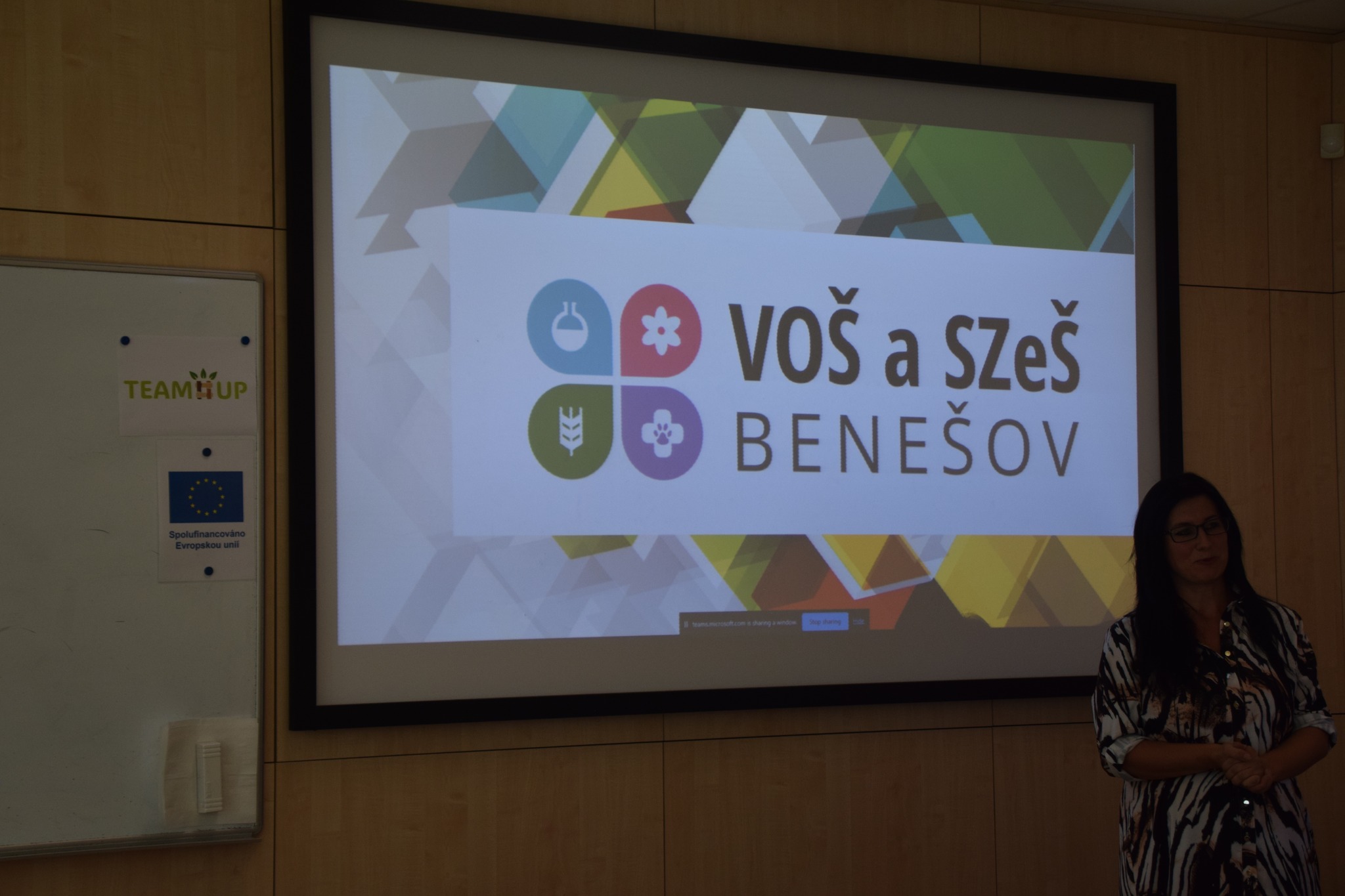

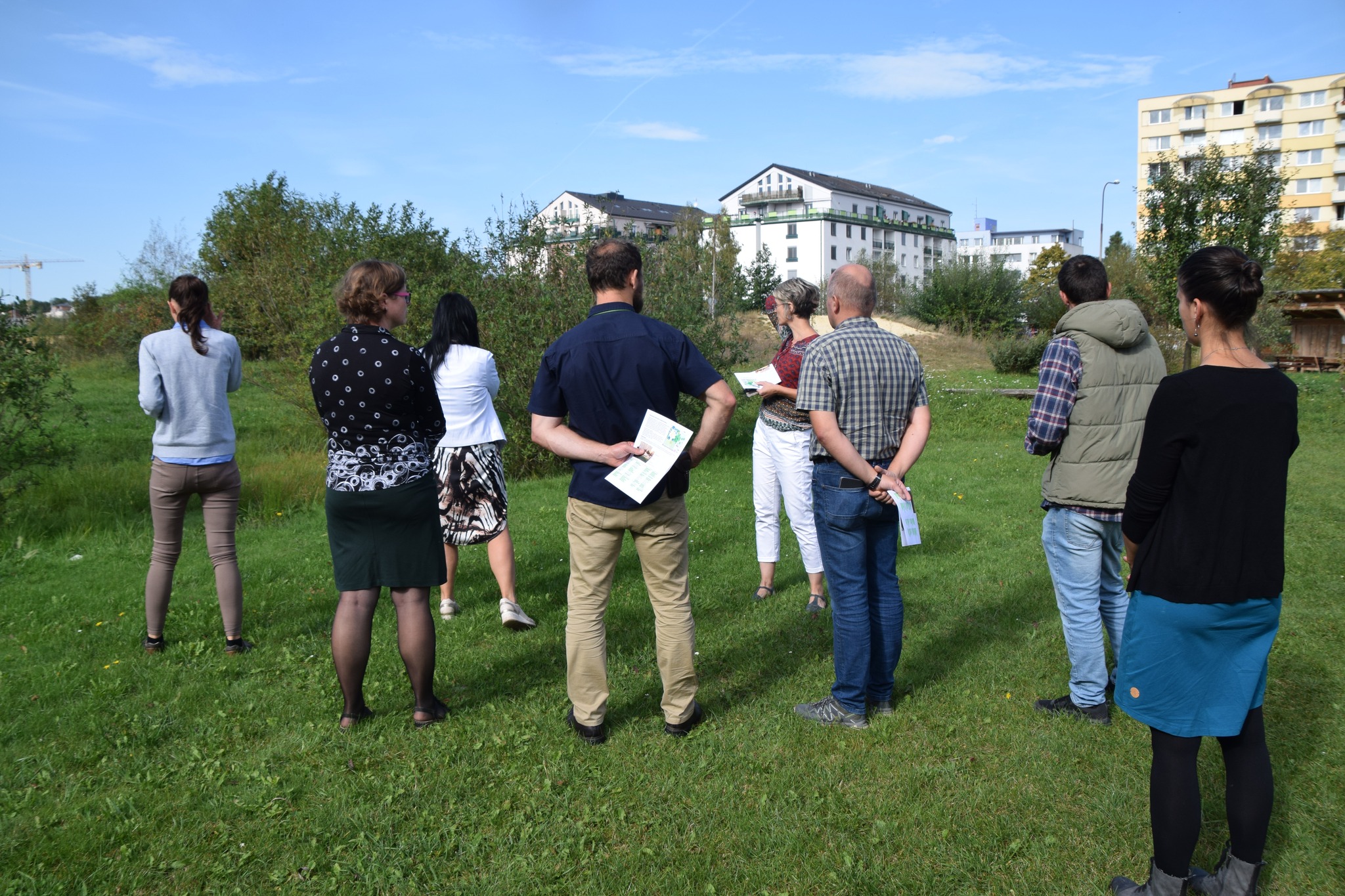


 These days, the World Conference on Ecological Restoration is taking place in Darwin, Australia. Our Restoration Ecology Working Group has a strong representation at the conference. Klára and Karel presented more general contributions about the factors that influence spontaneous succession on a global scale (Karel), and the possibilities and limitations of the use of spontaneous succession in European mining sites (Klára). During the poster session, Anička presented the Catalogue of Successional Stages SUCCESS, which is currently under construction, and Kamča presented the results of our project on the production of regional seed biomass. We wish all participants a pleasant rest of the conference.
These days, the World Conference on Ecological Restoration is taking place in Darwin, Australia. Our Restoration Ecology Working Group has a strong representation at the conference. Klára and Karel presented more general contributions about the factors that influence spontaneous succession on a global scale (Karel), and the possibilities and limitations of the use of spontaneous succession in European mining sites (Klára). During the poster session, Anička presented the Catalogue of Successional Stages SUCCESS, which is currently under construction, and Kamča presented the results of our project on the production of regional seed biomass. We wish all participants a pleasant rest of the conference.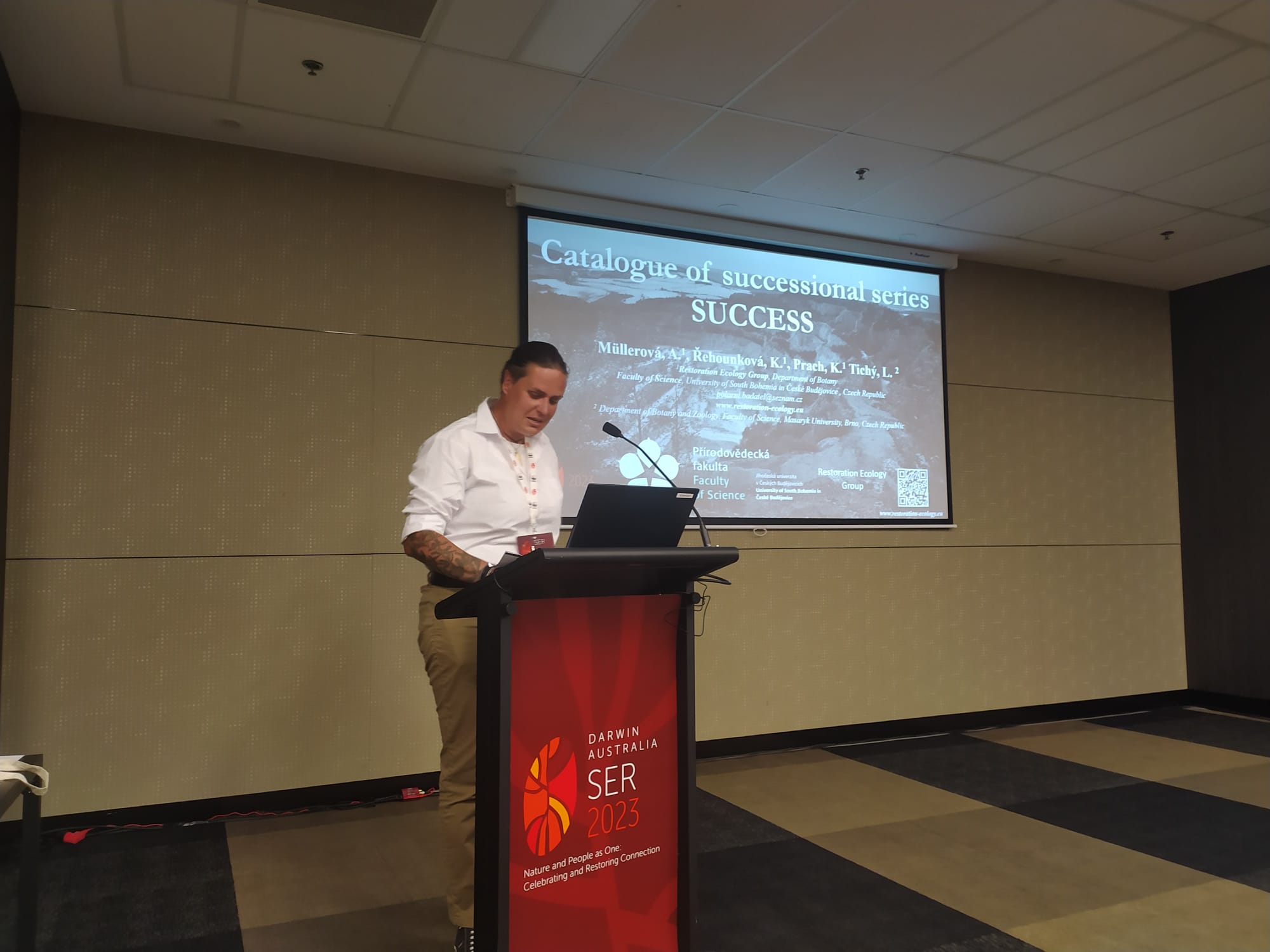
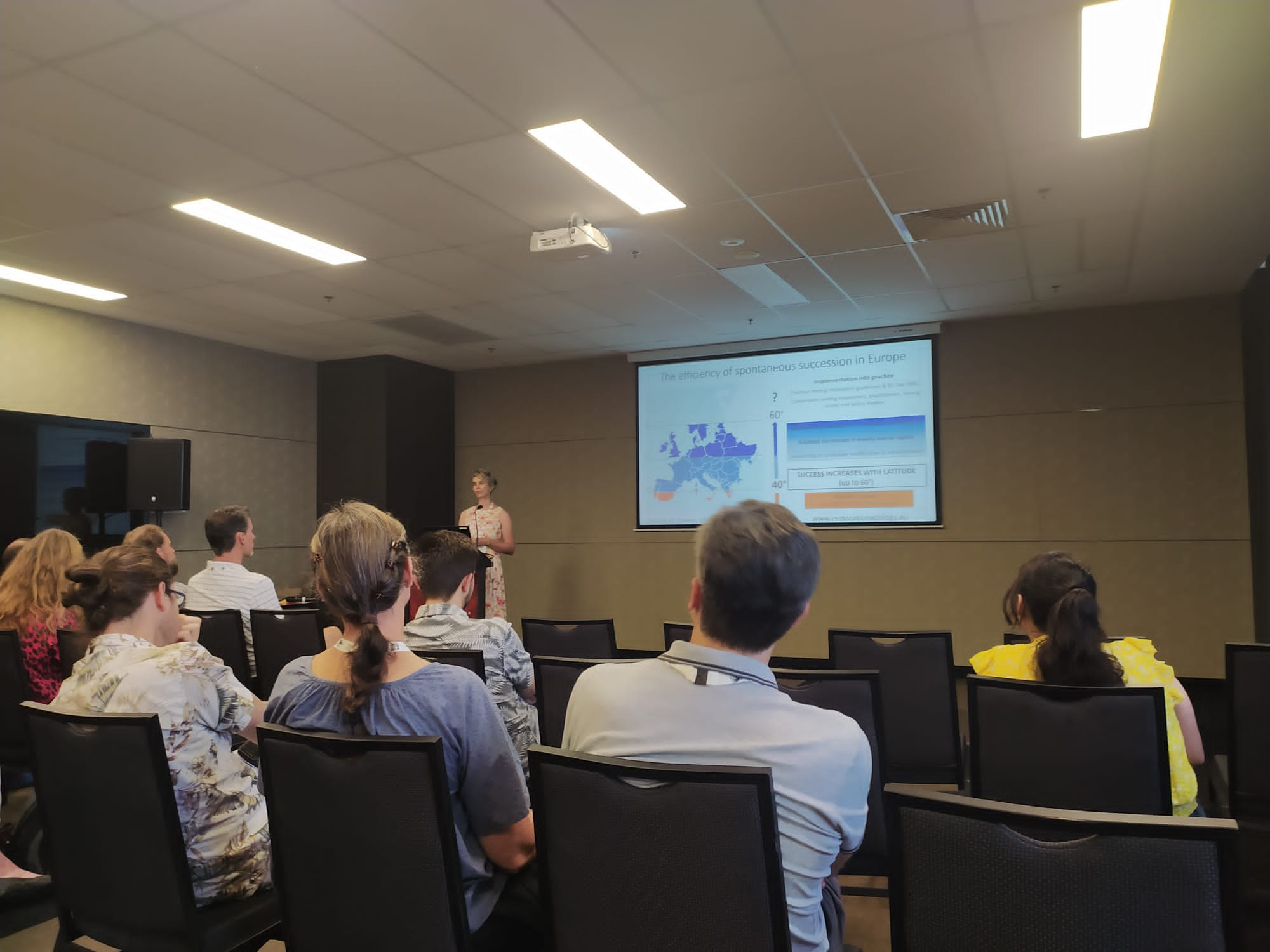
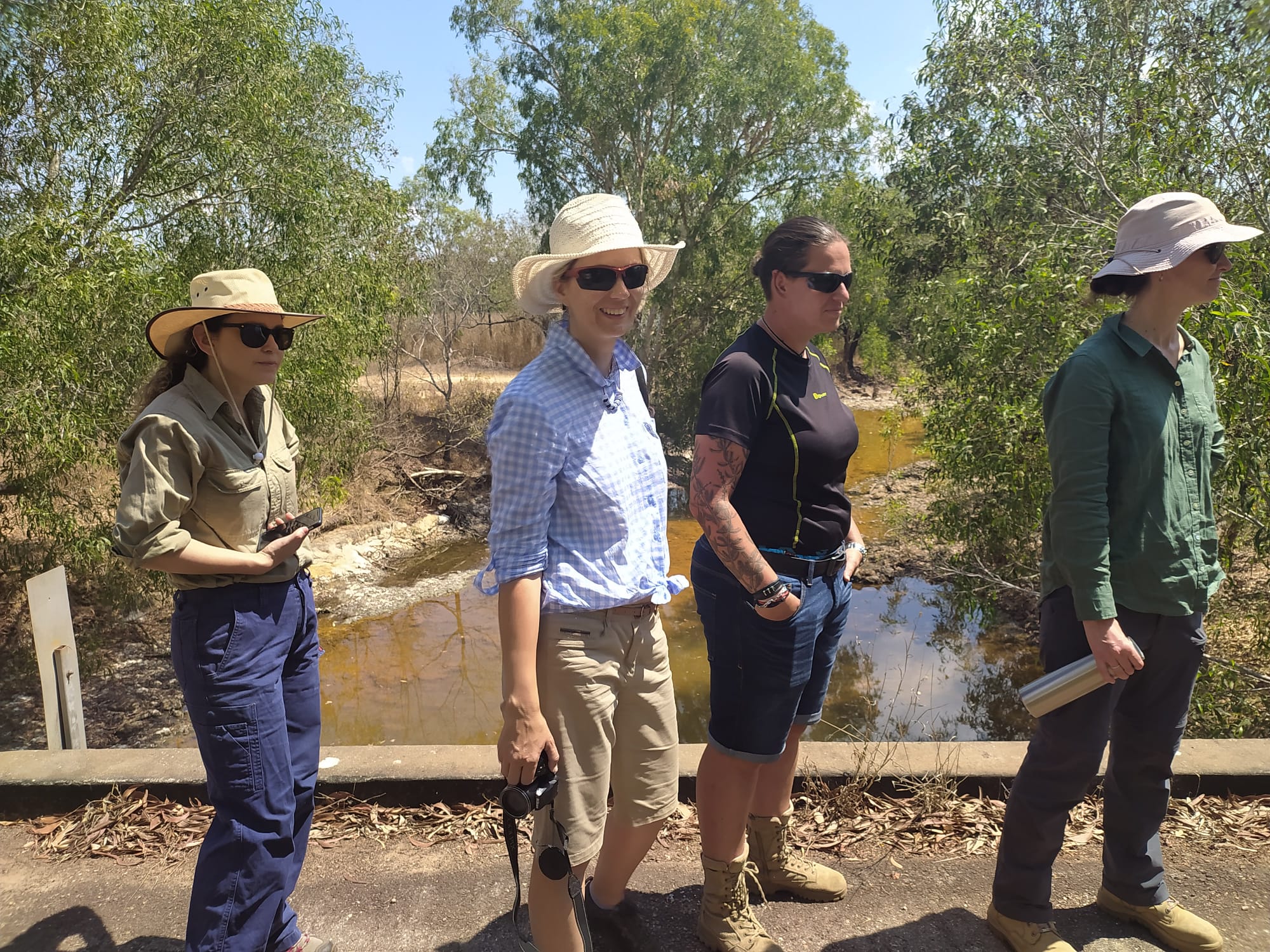
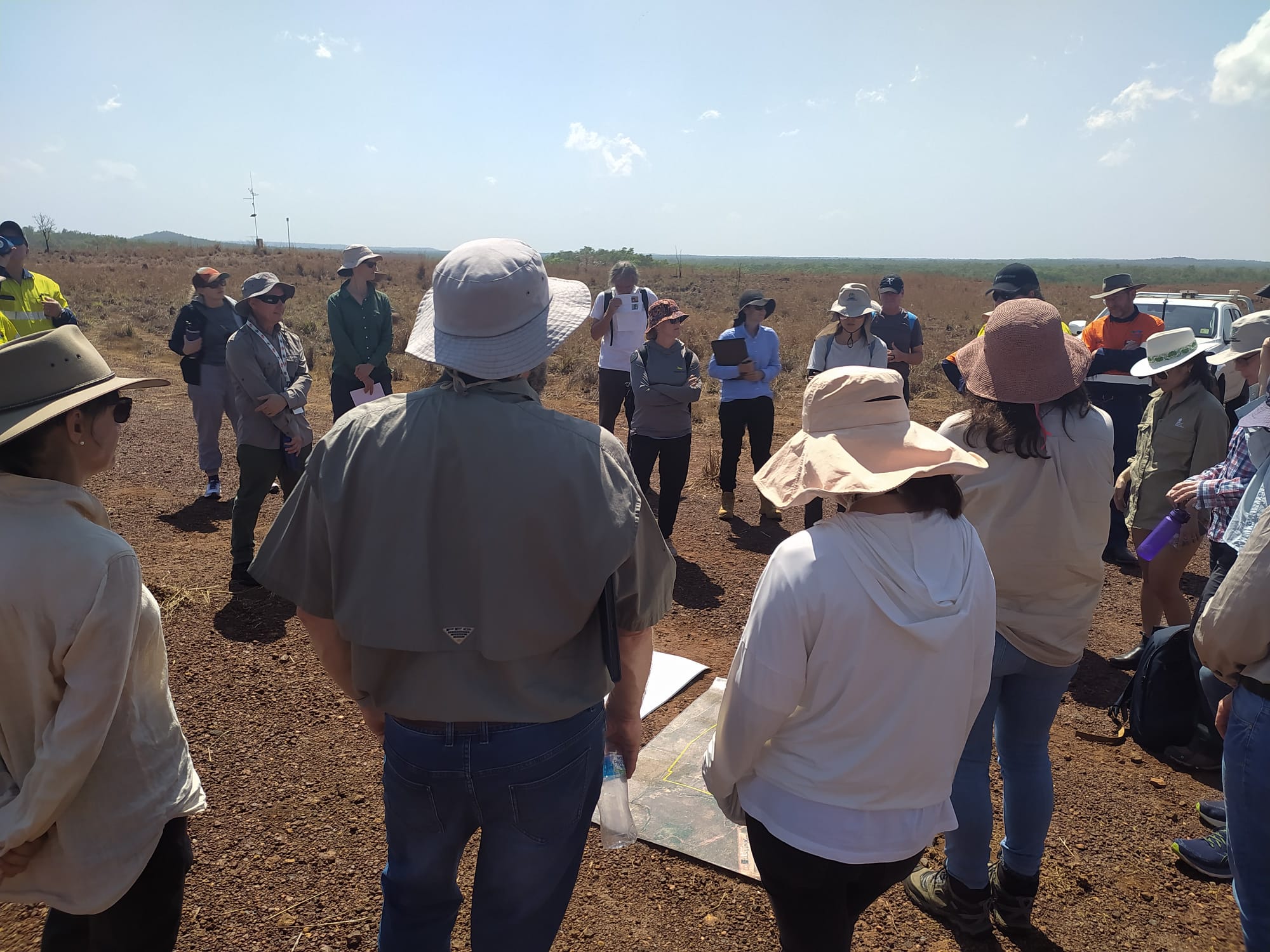
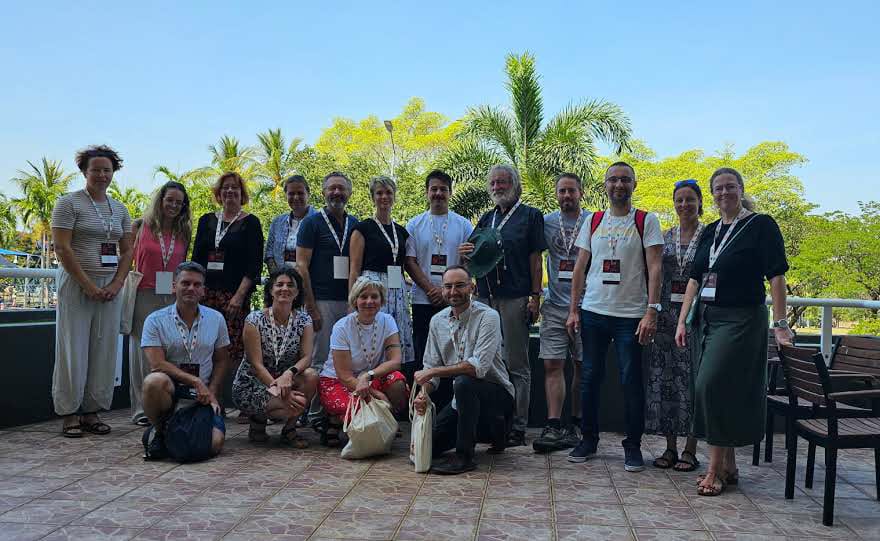
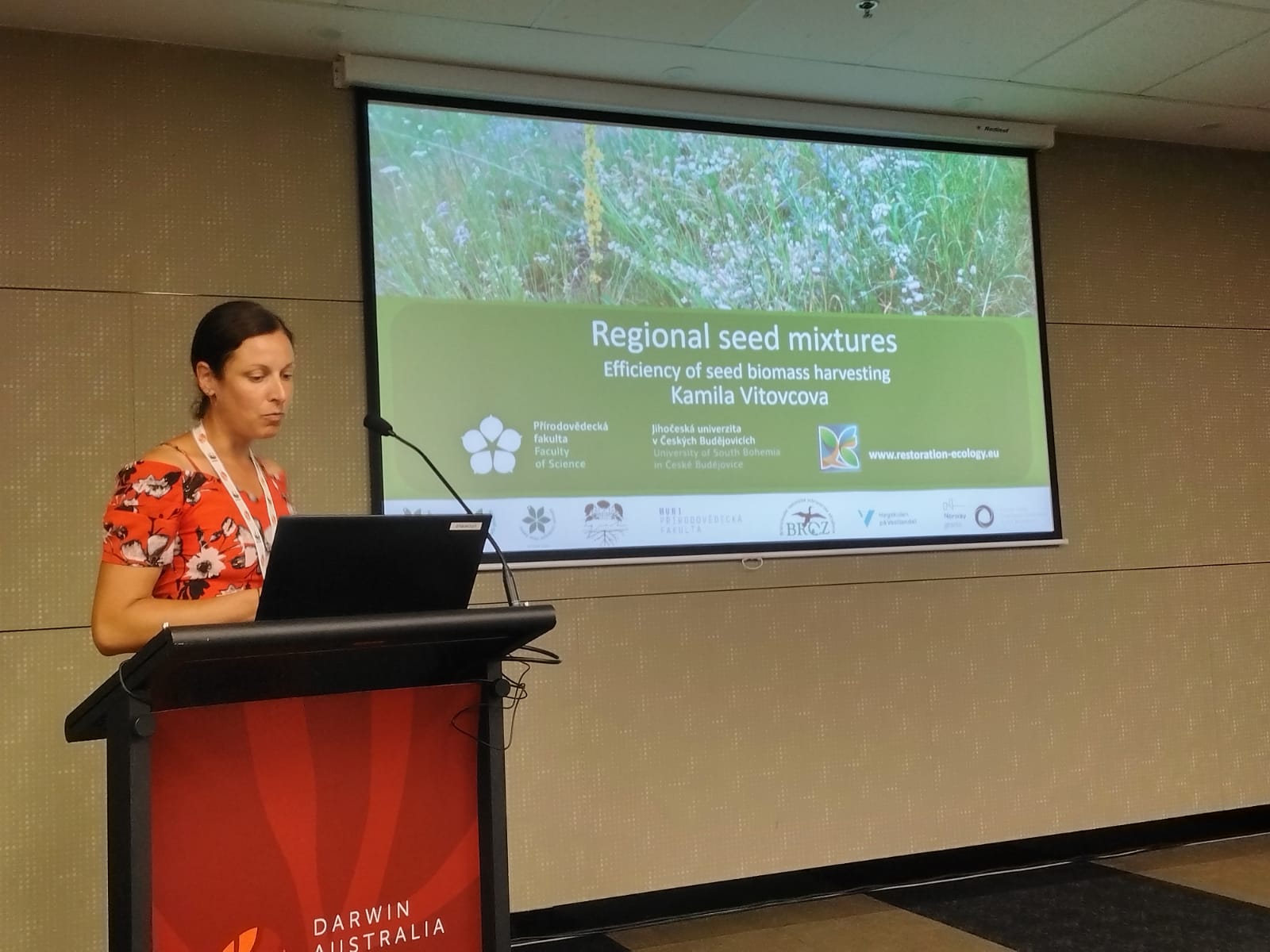
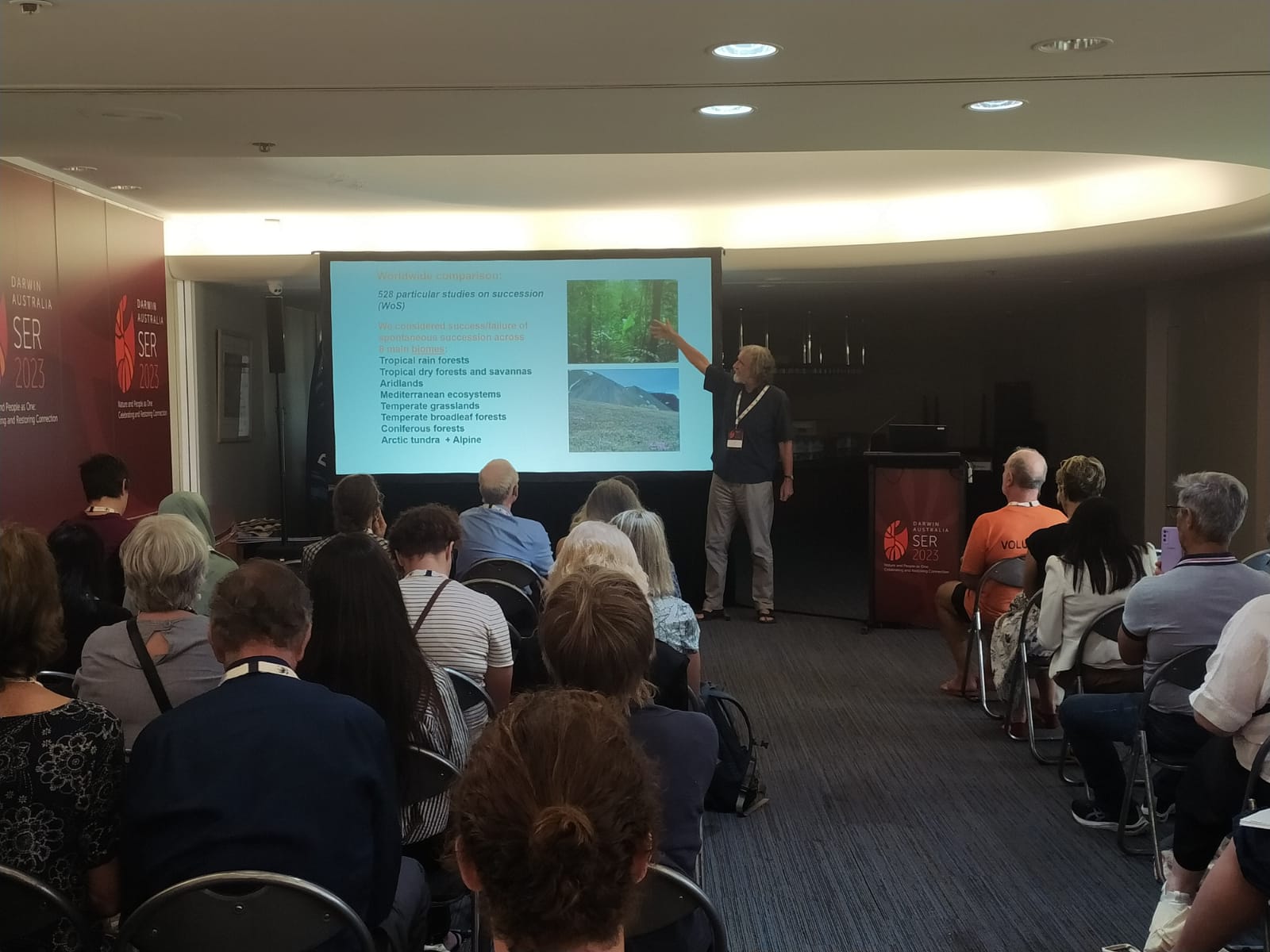
 The seminar called "How to establish a flowering grassland" took place on 4th September at the Faculty of Science, University of South Bohemia in České Budějovice. Based on the number of participants, we assume that this is a current and appealing topic. In the afternoon, there was also a practical demonstration of brush harvesters used to collect seeds (or rather seed biomass) of plant species.
The seminar called "How to establish a flowering grassland" took place on 4th September at the Faculty of Science, University of South Bohemia in České Budějovice. Based on the number of participants, we assume that this is a current and appealing topic. In the afternoon, there was also a practical demonstration of brush harvesters used to collect seeds (or rather seed biomass) of plant species.